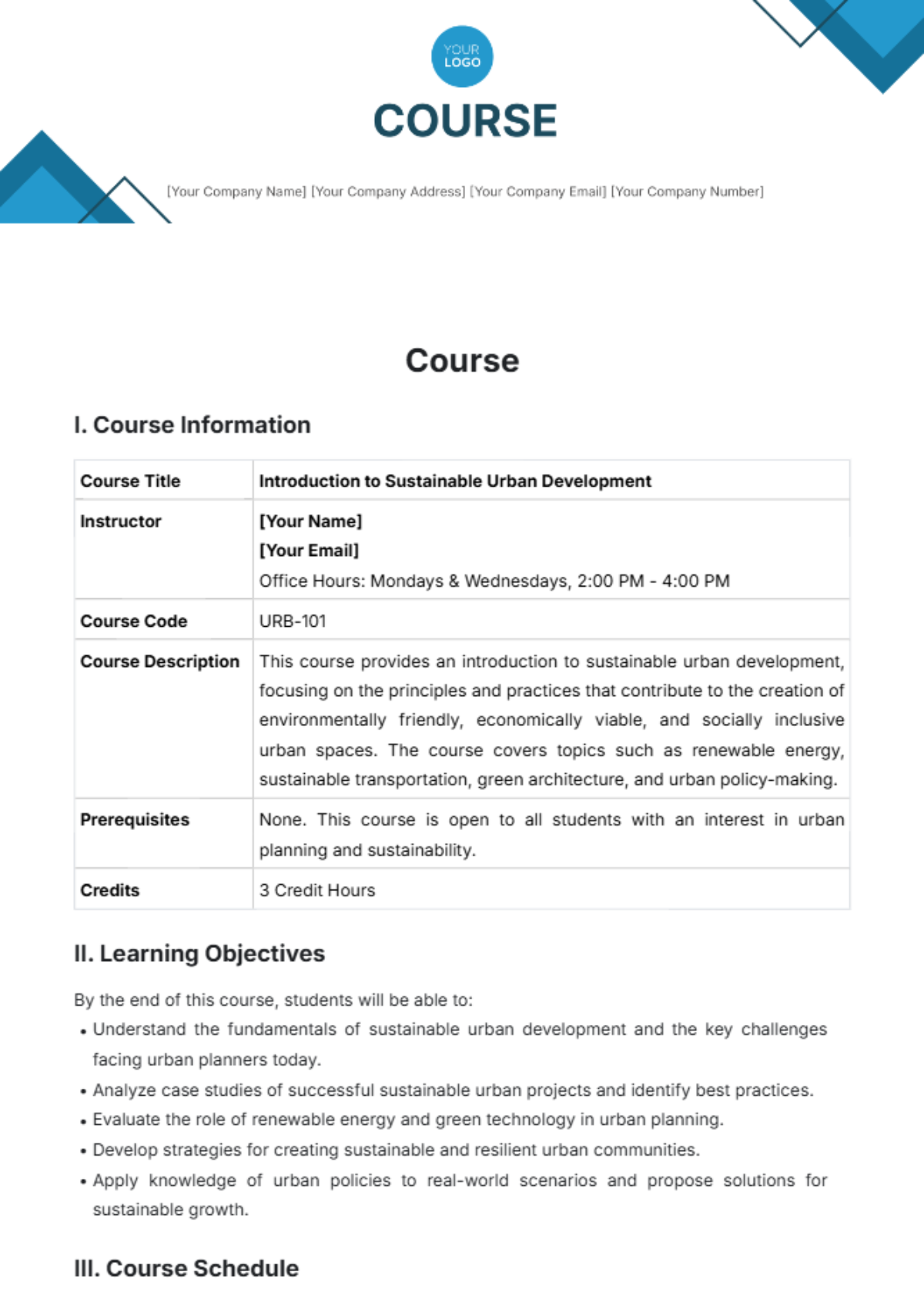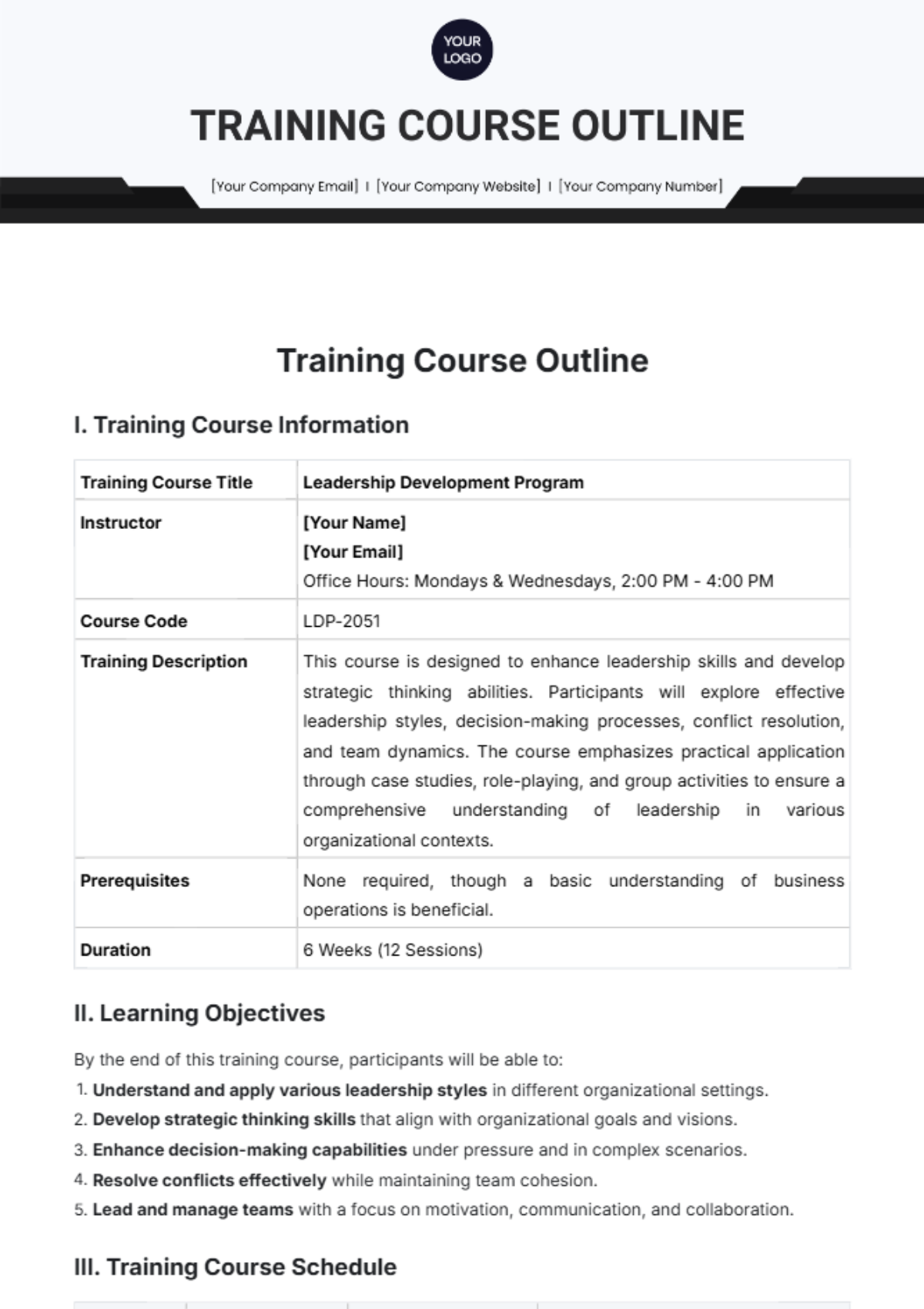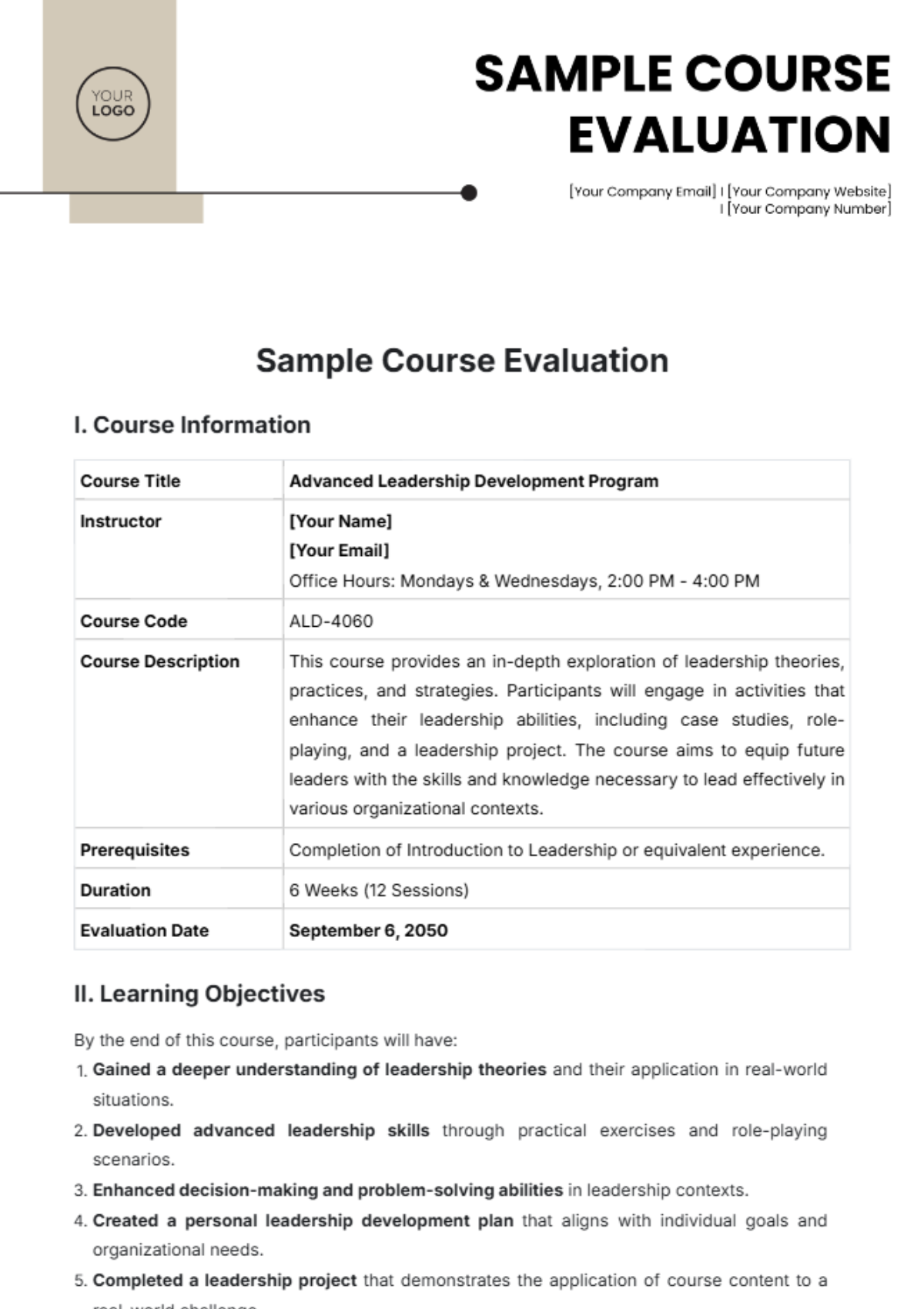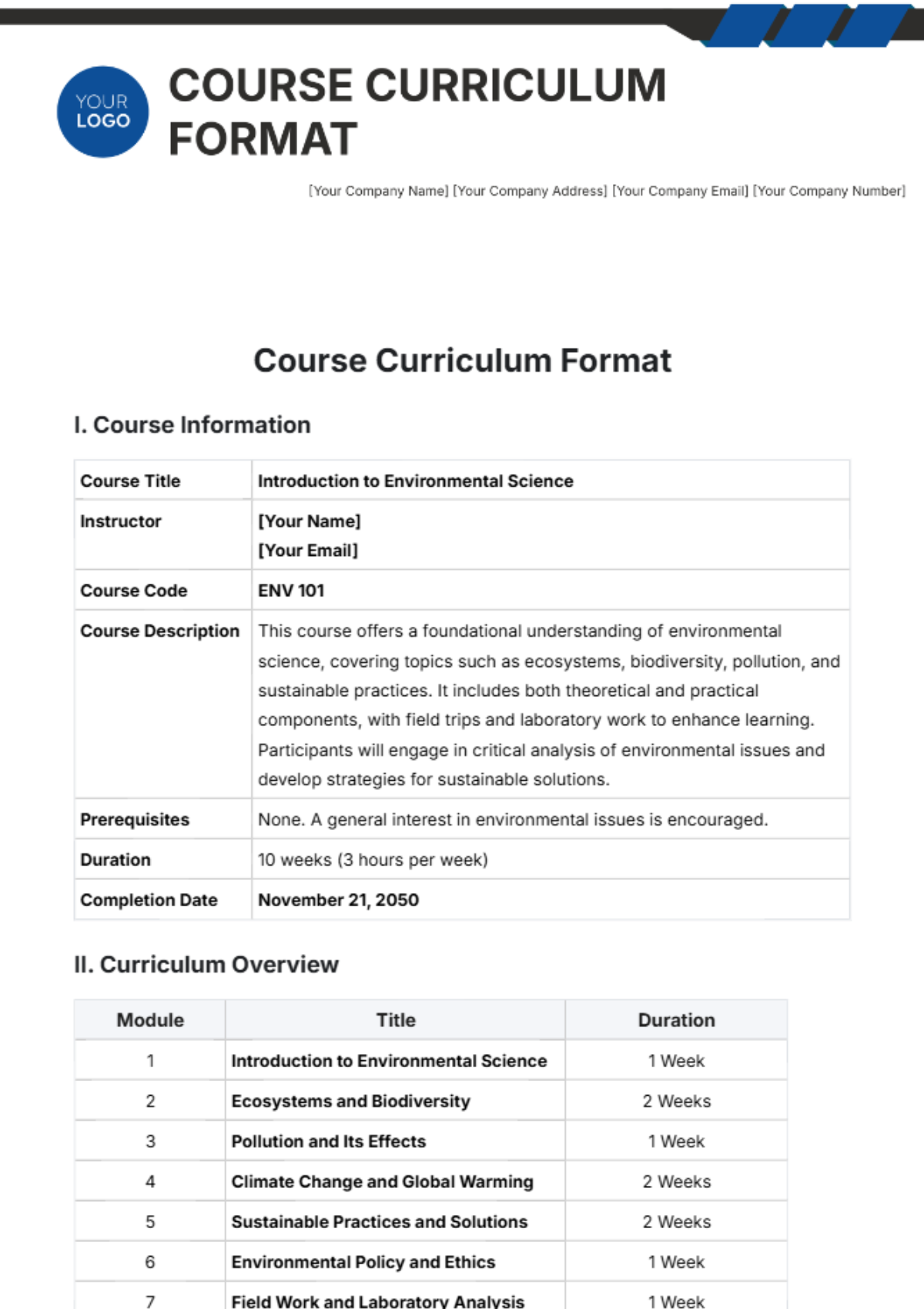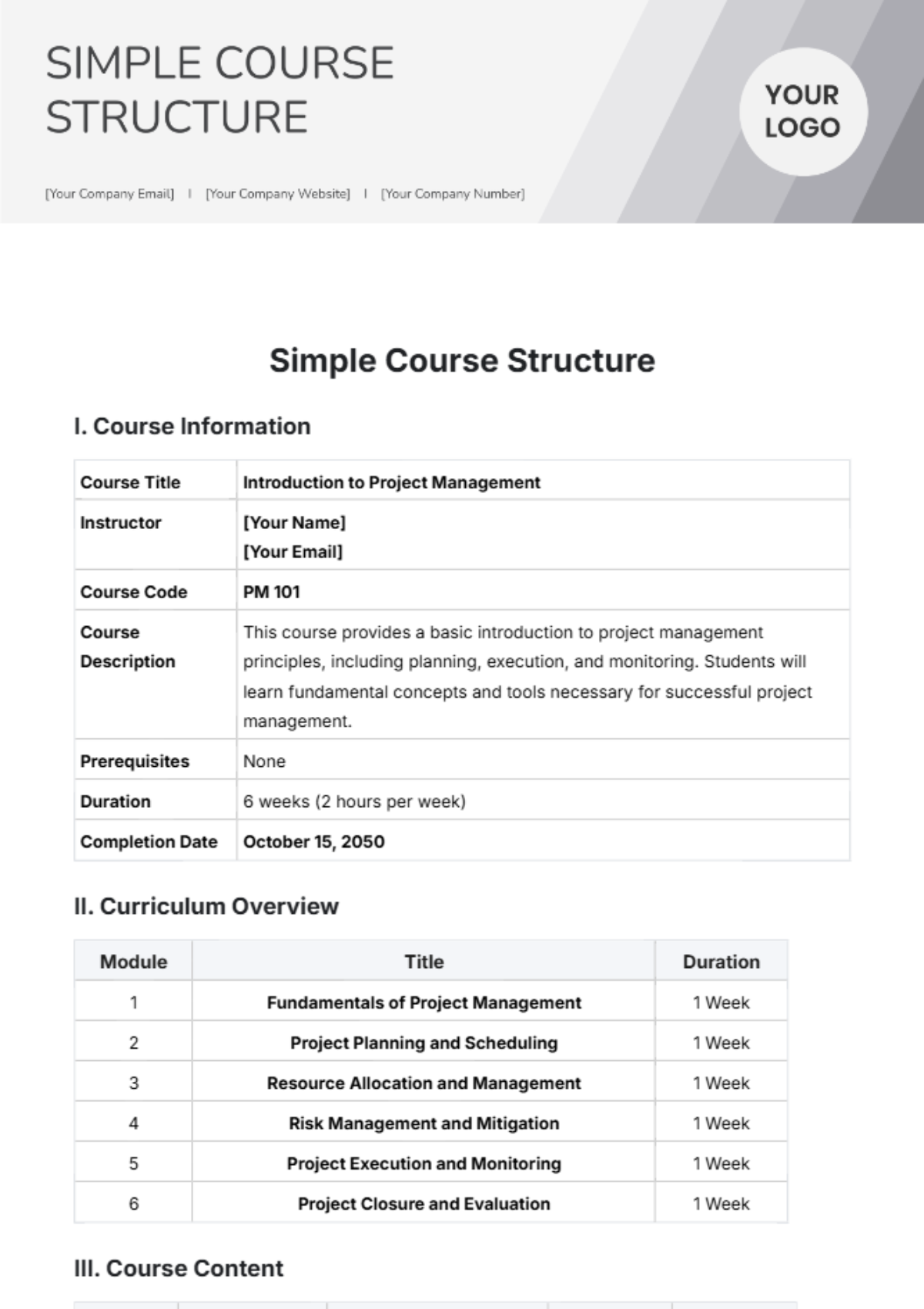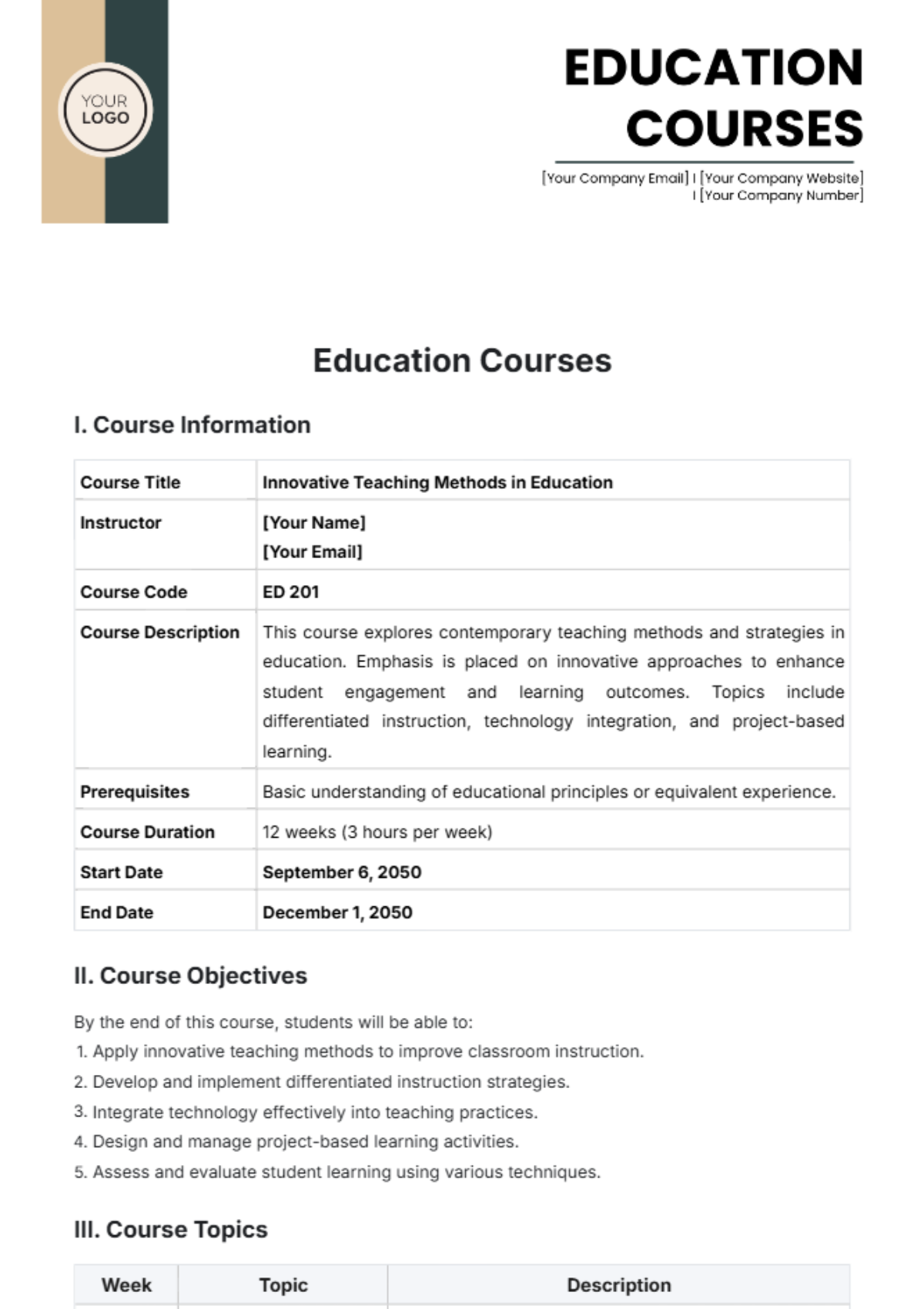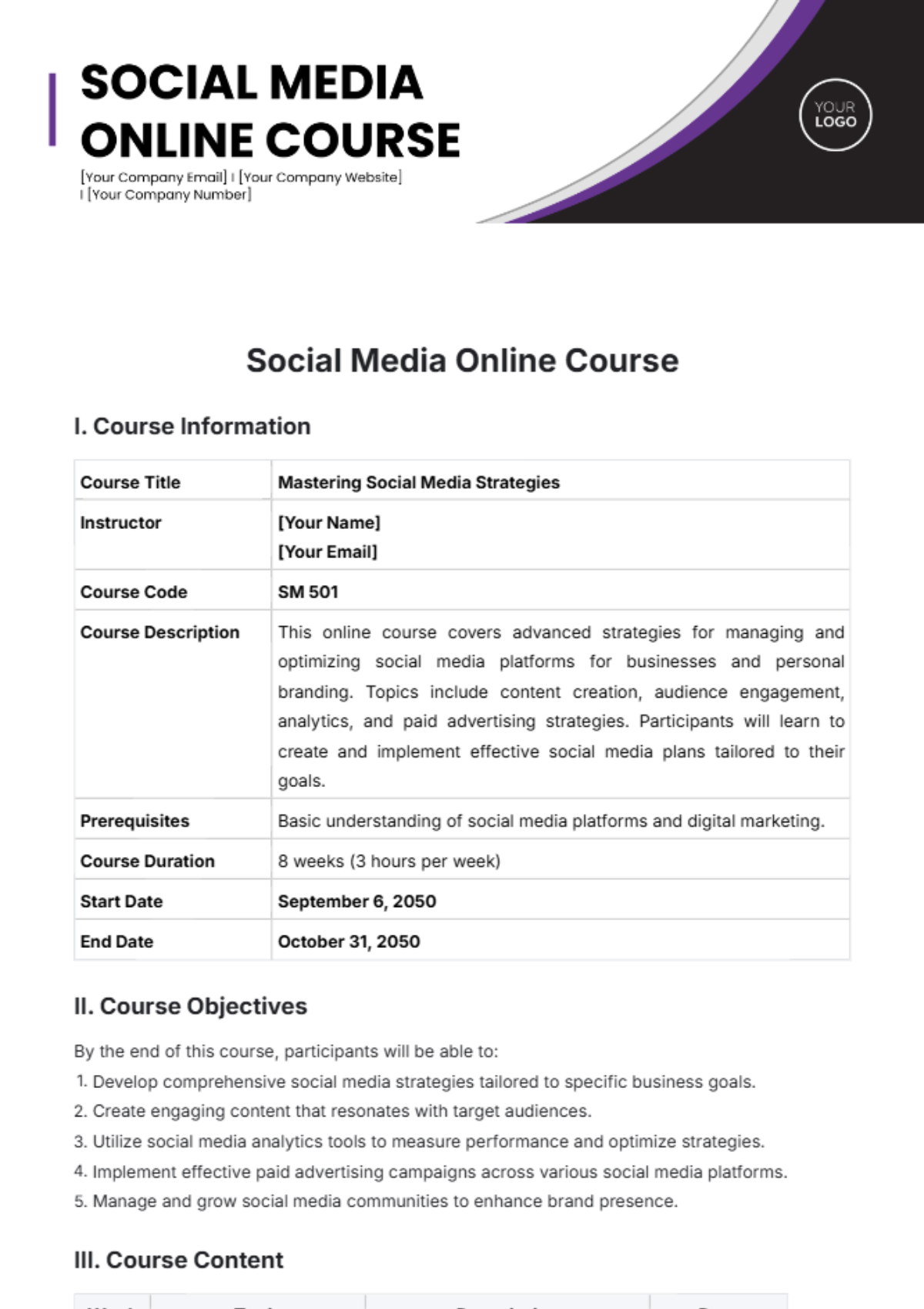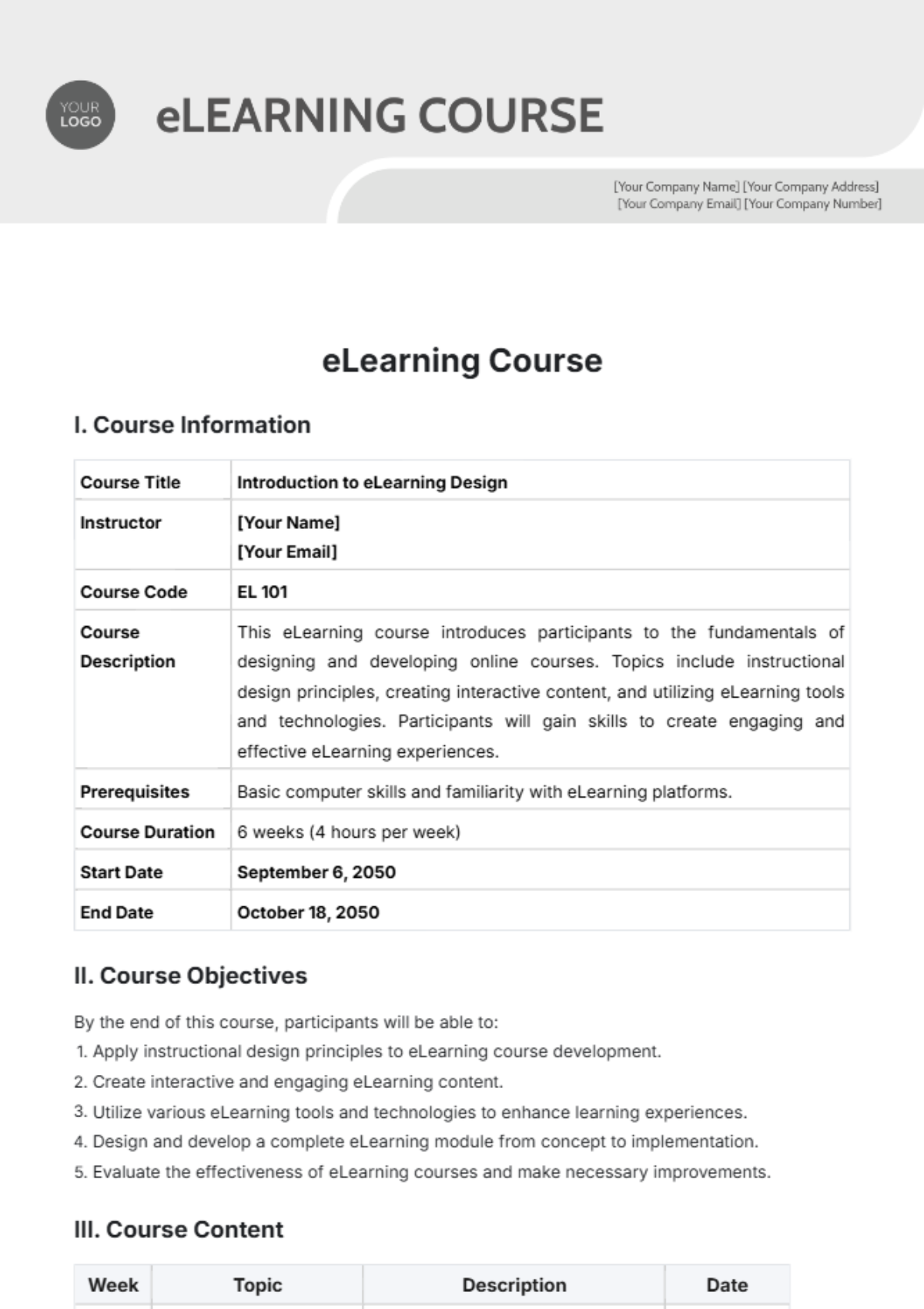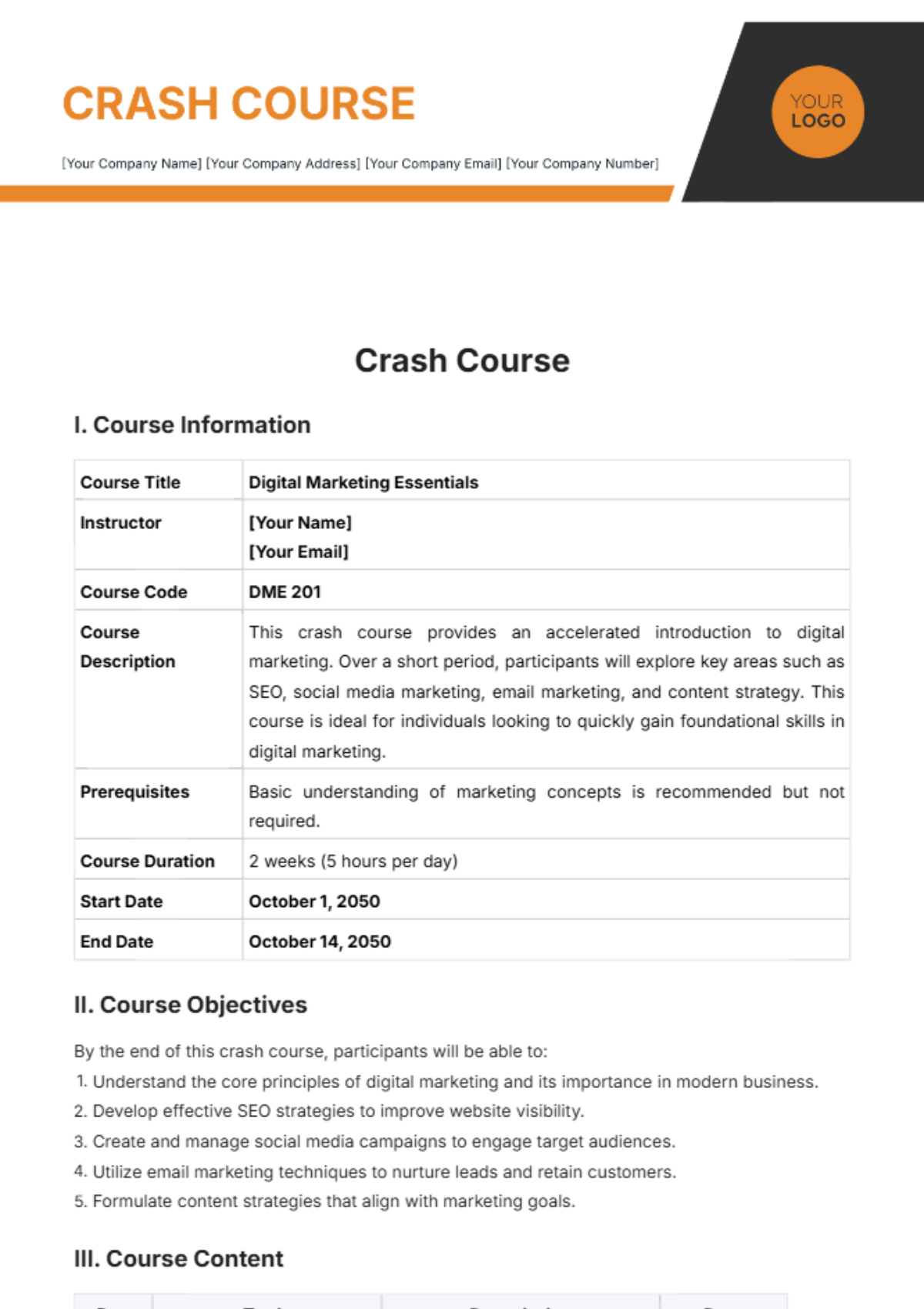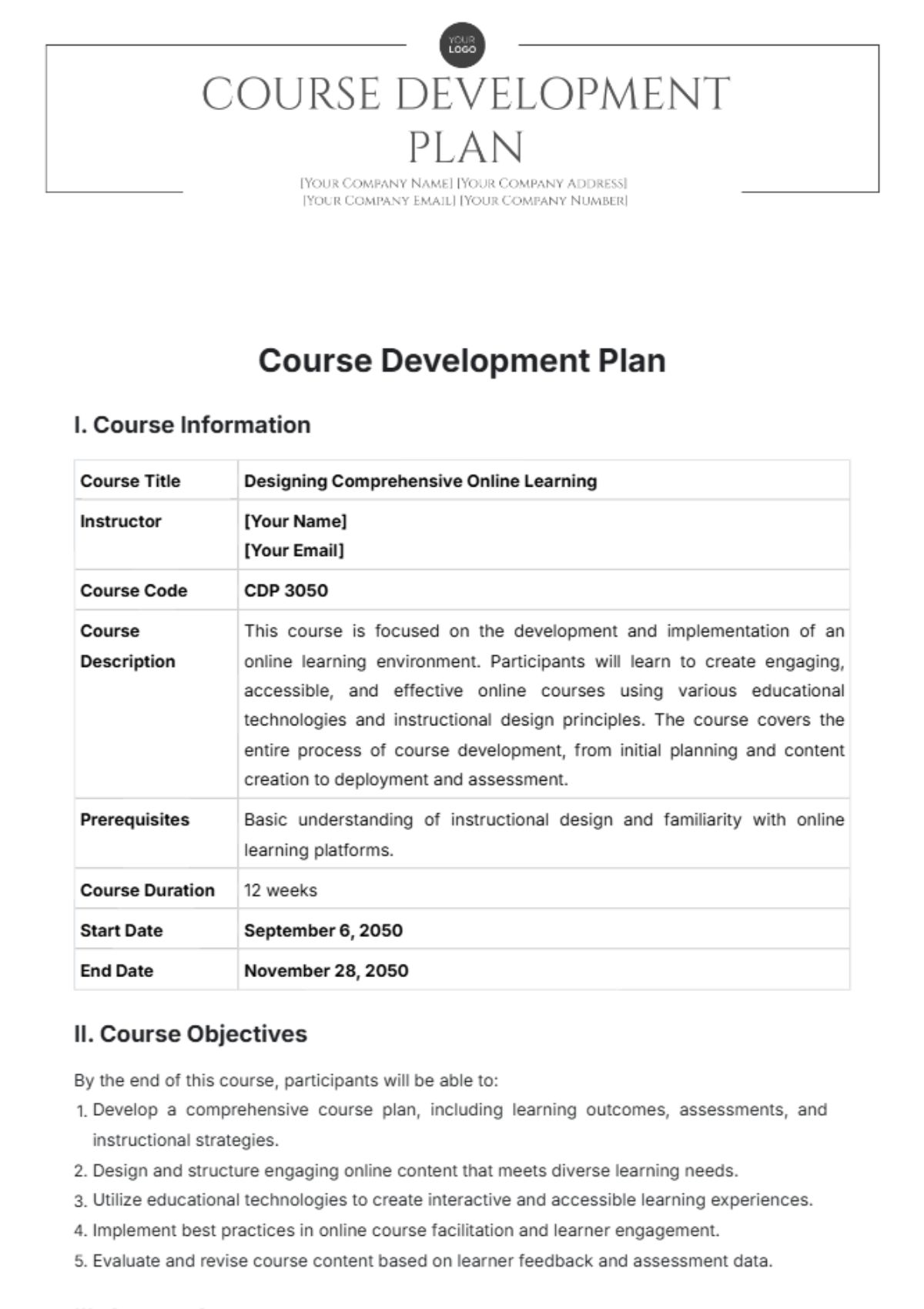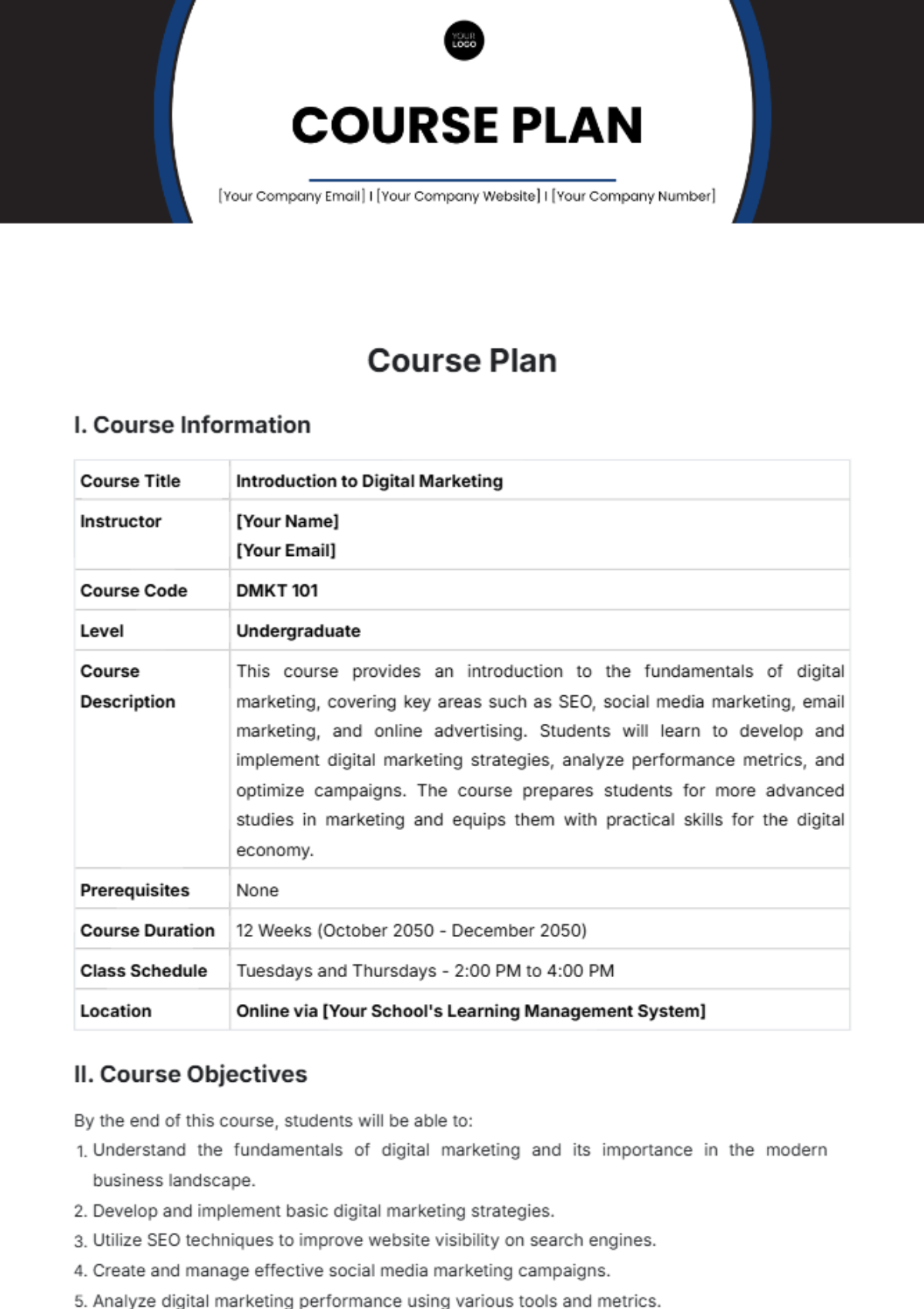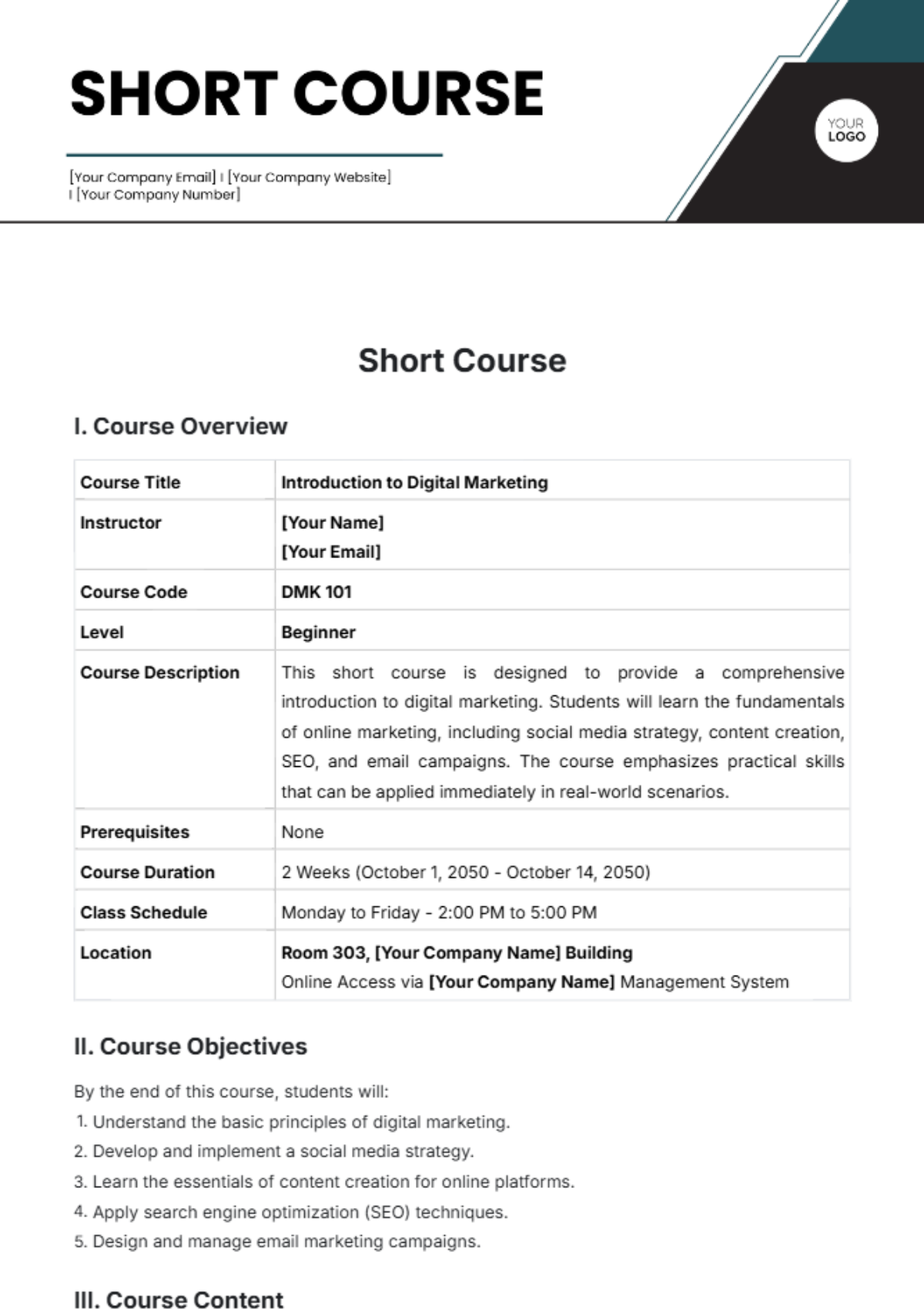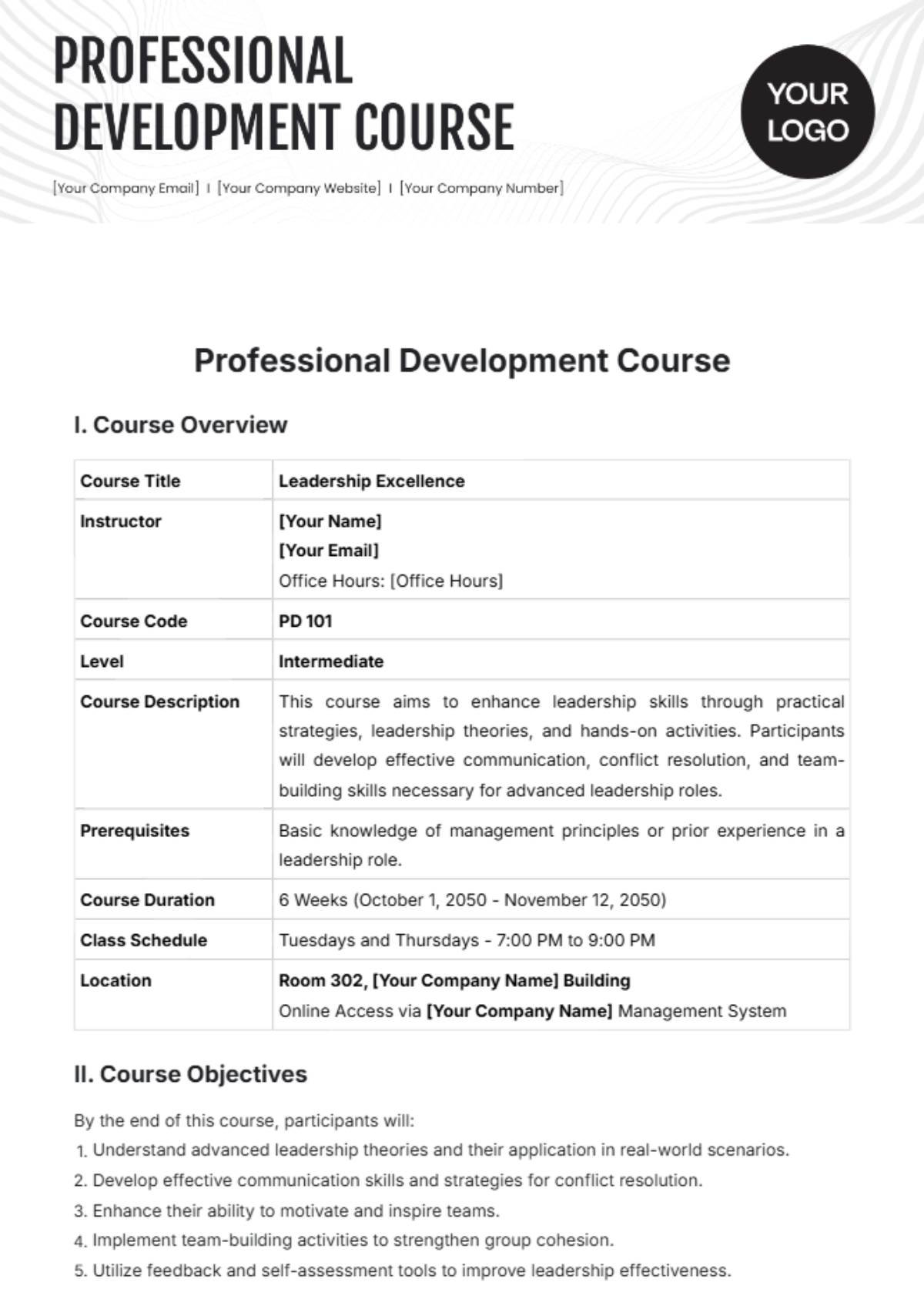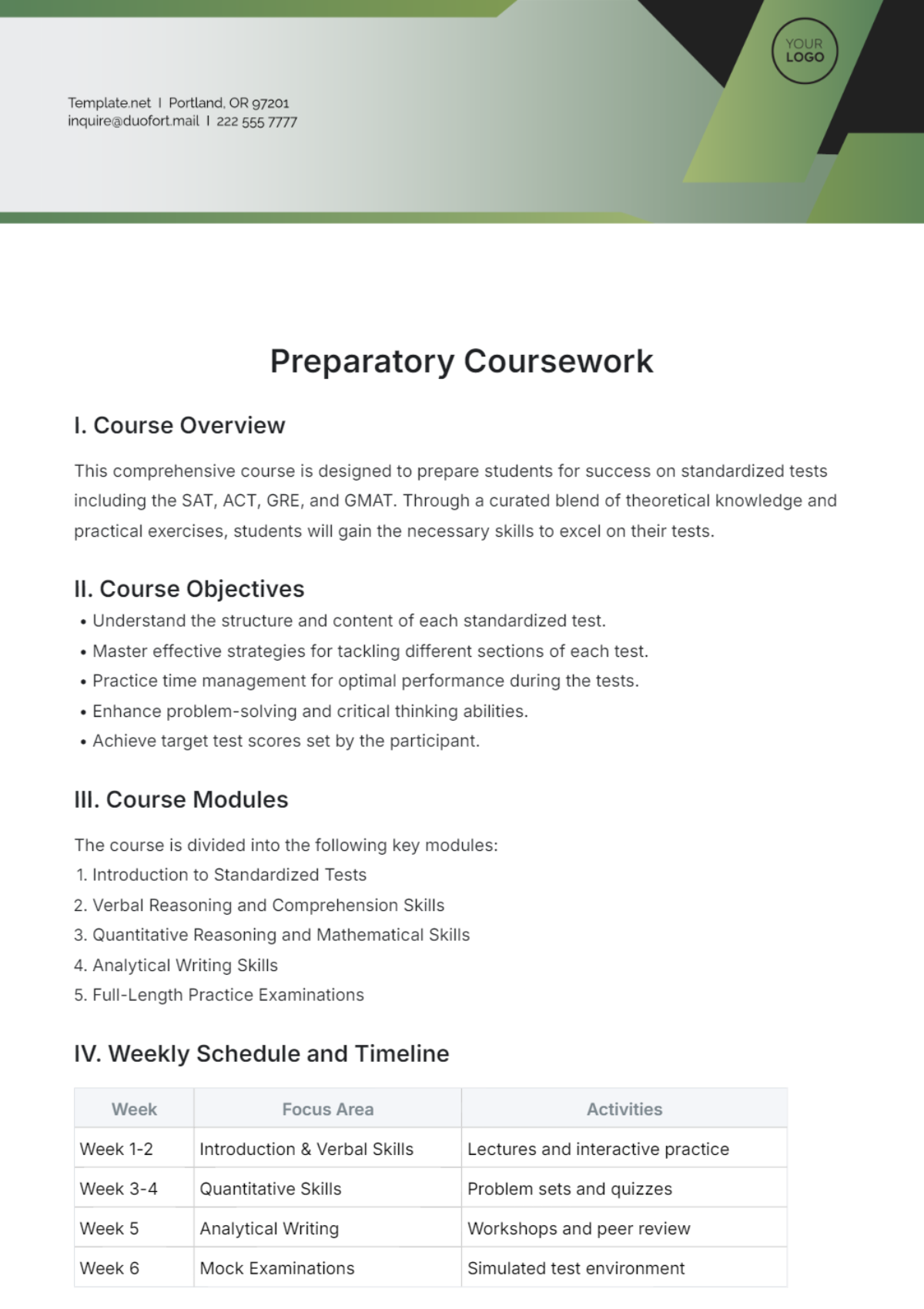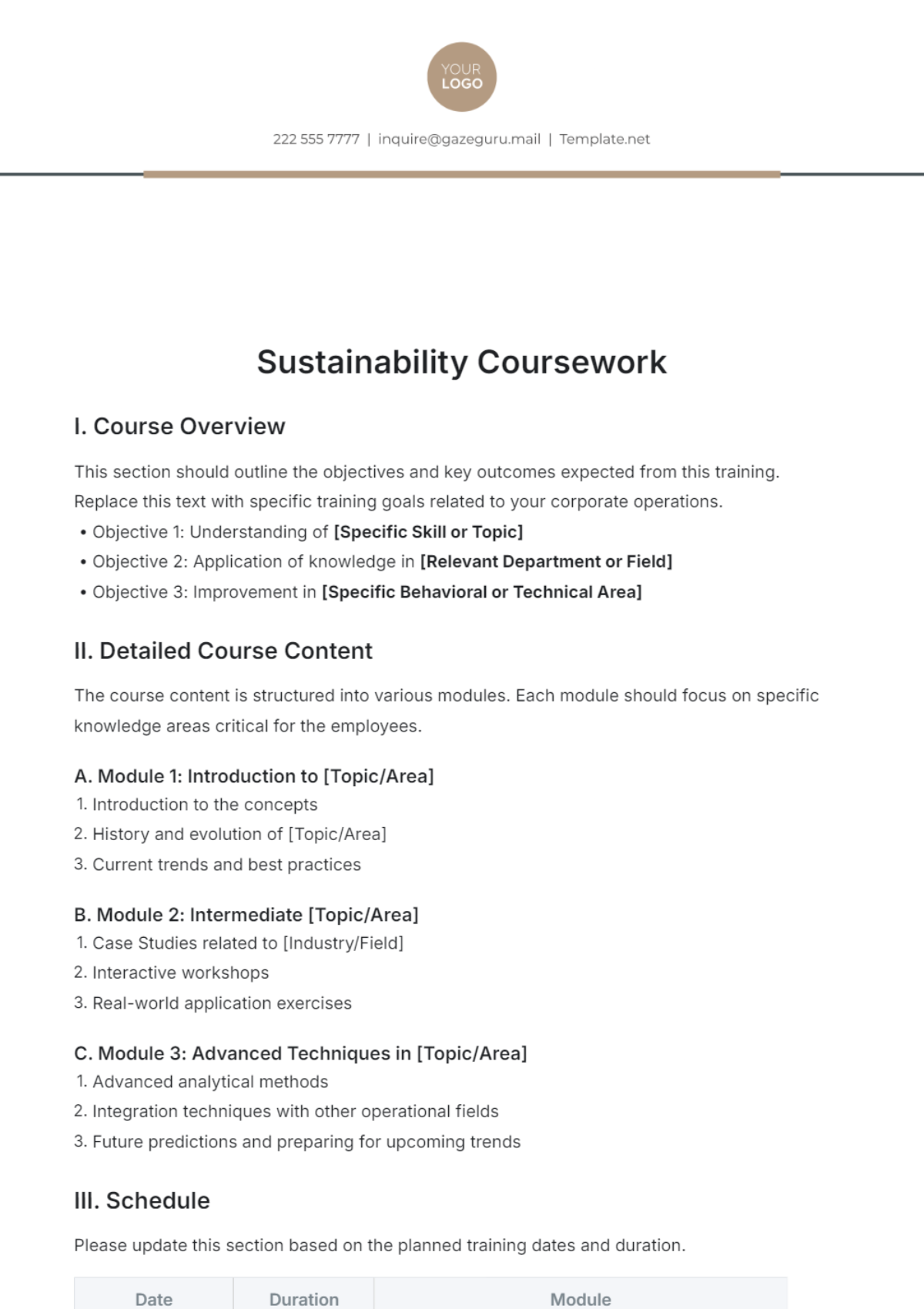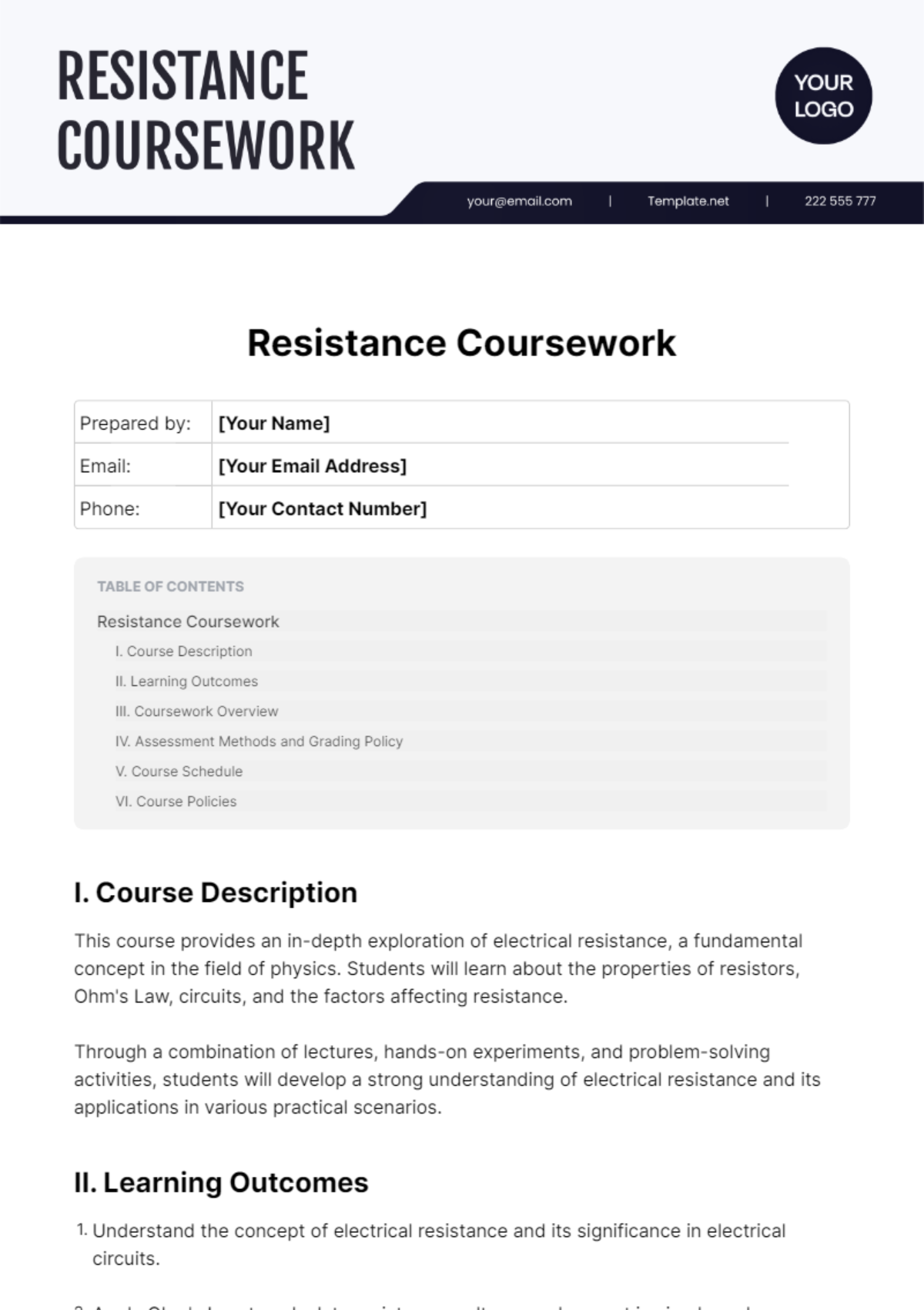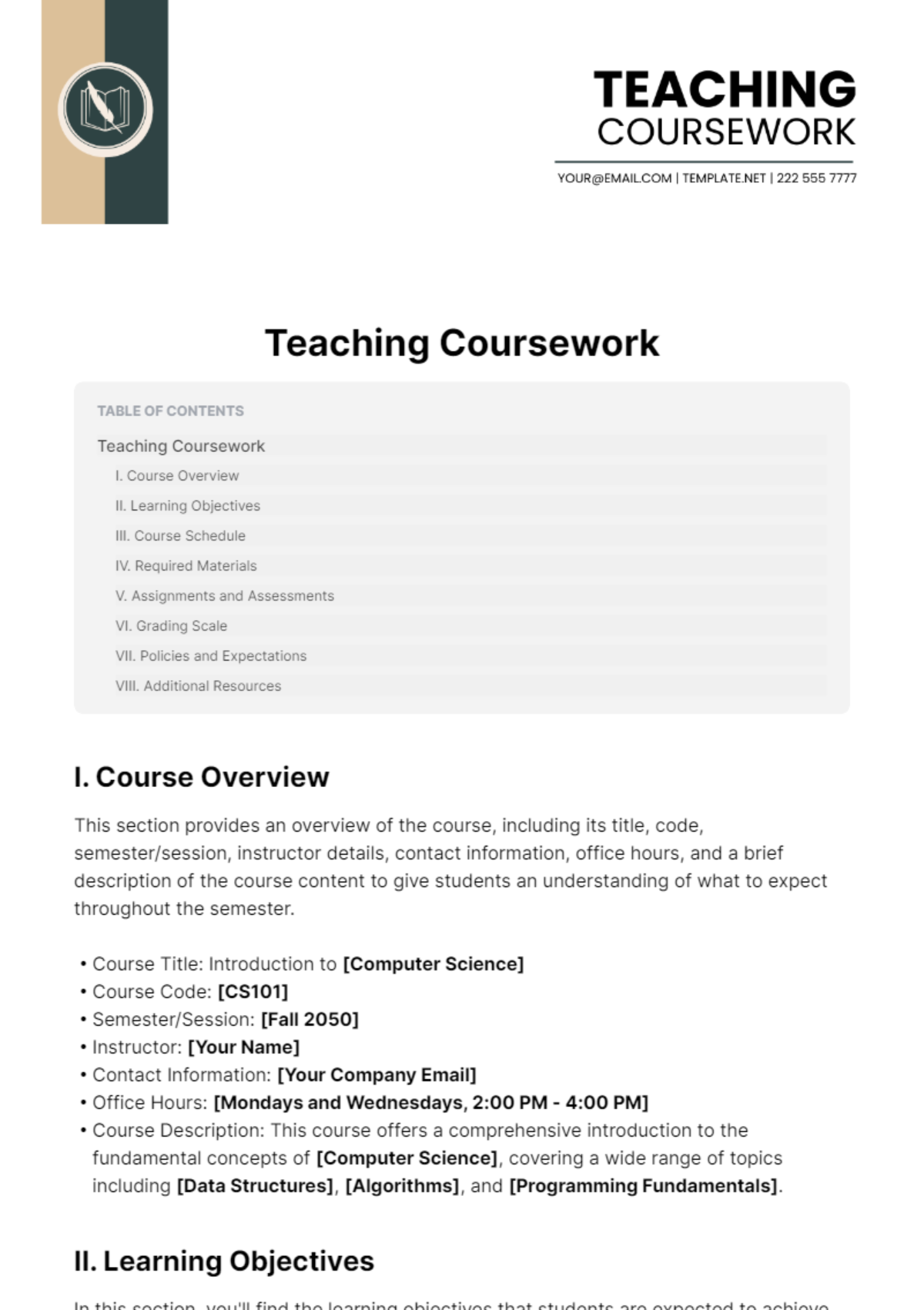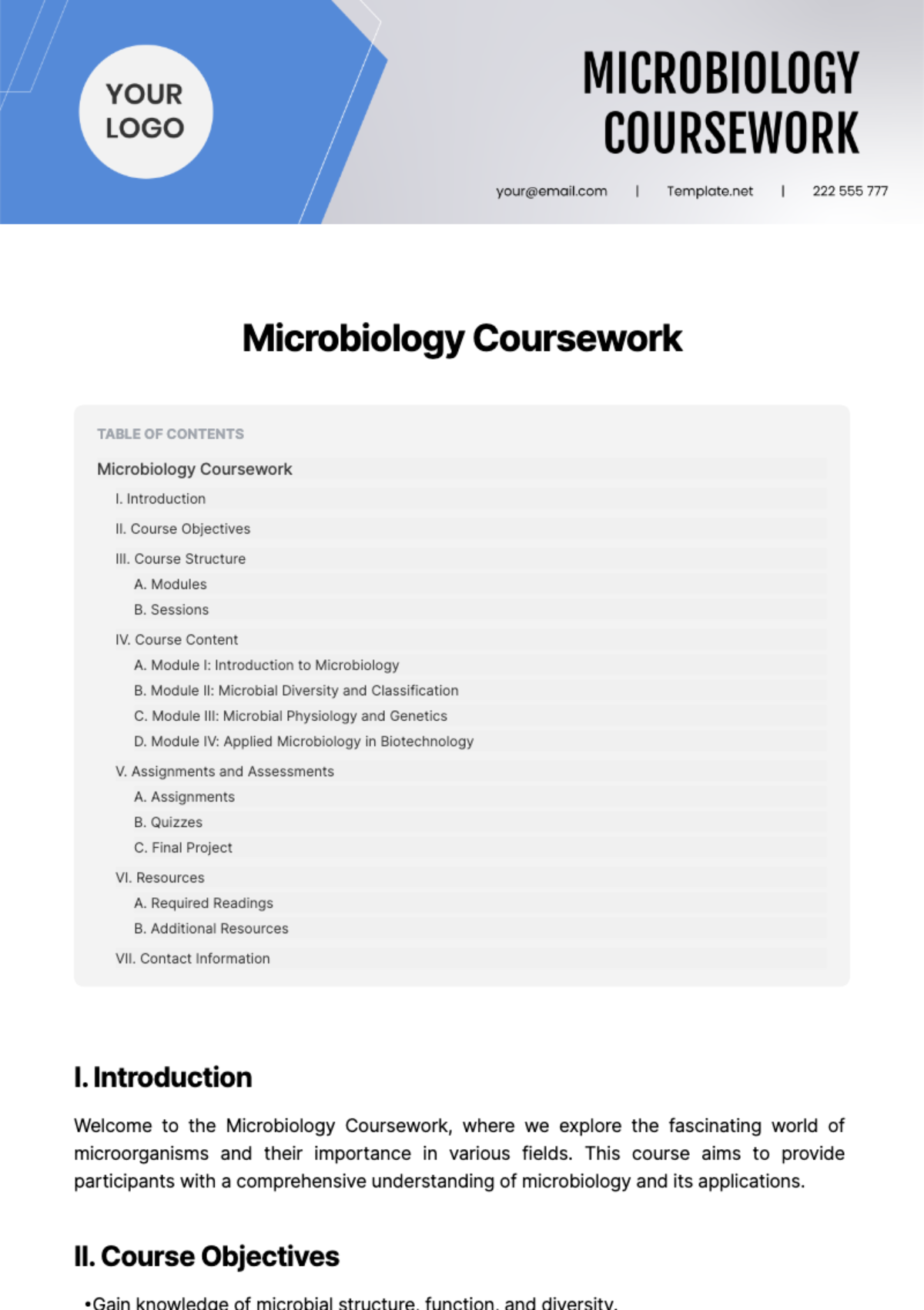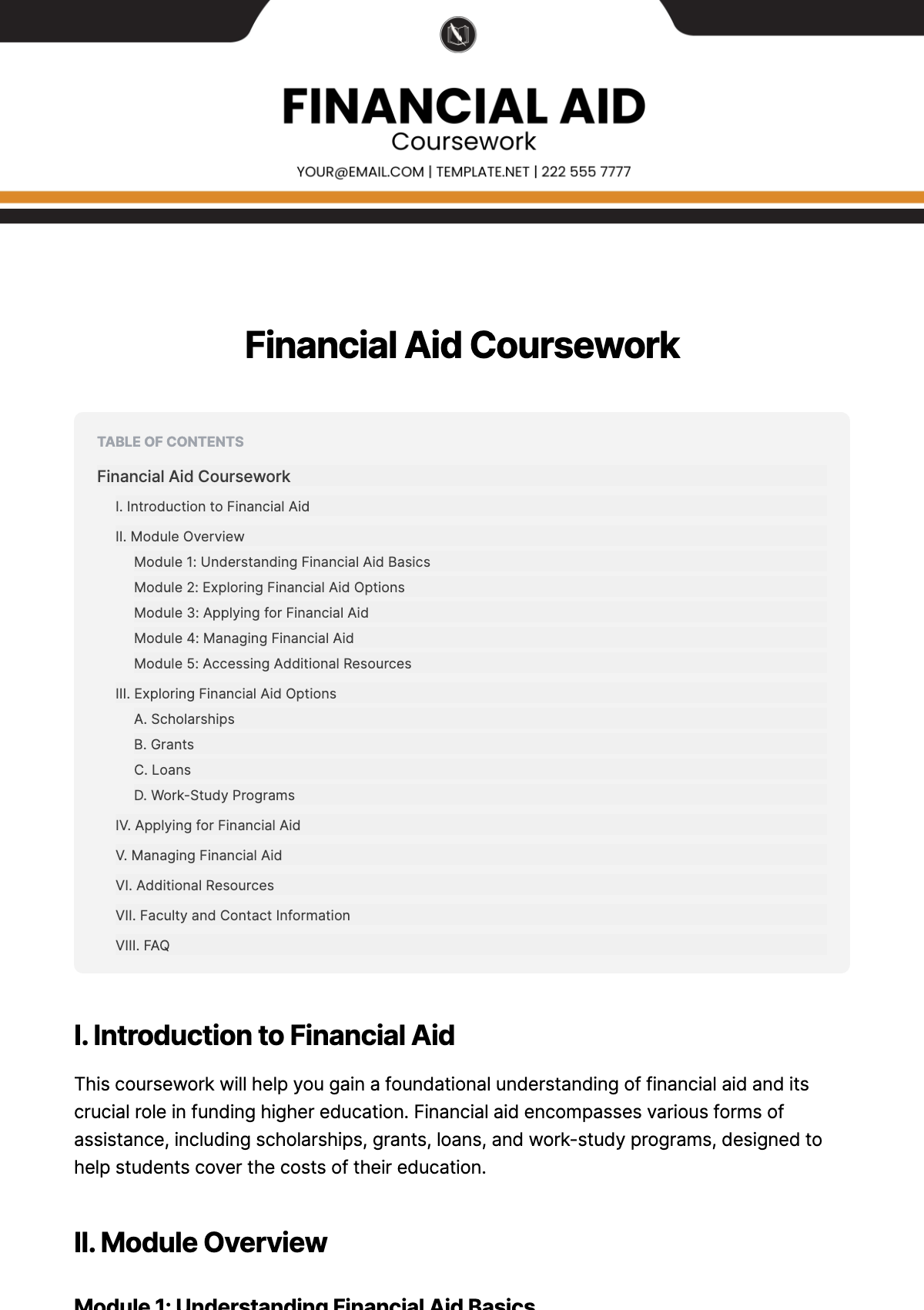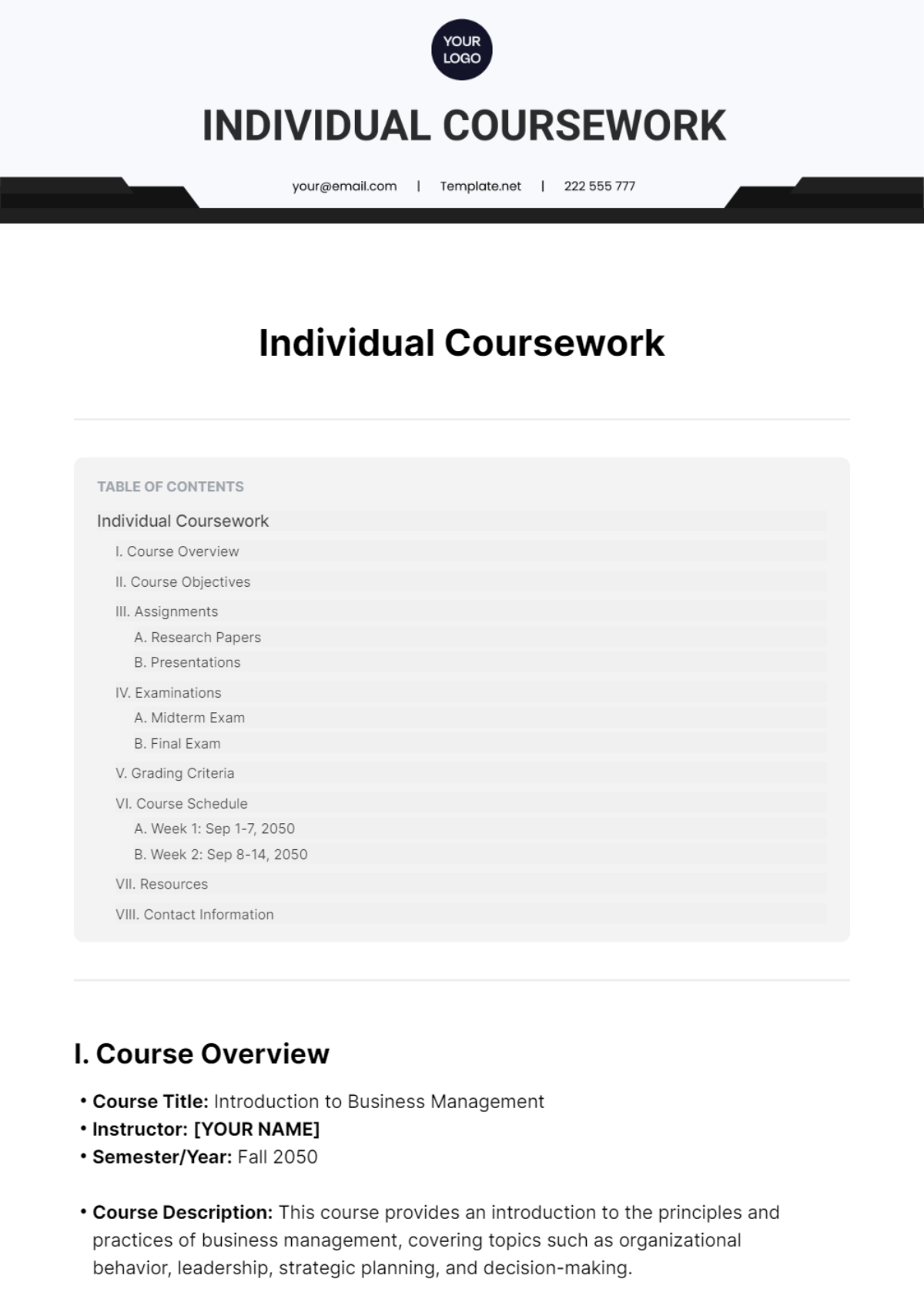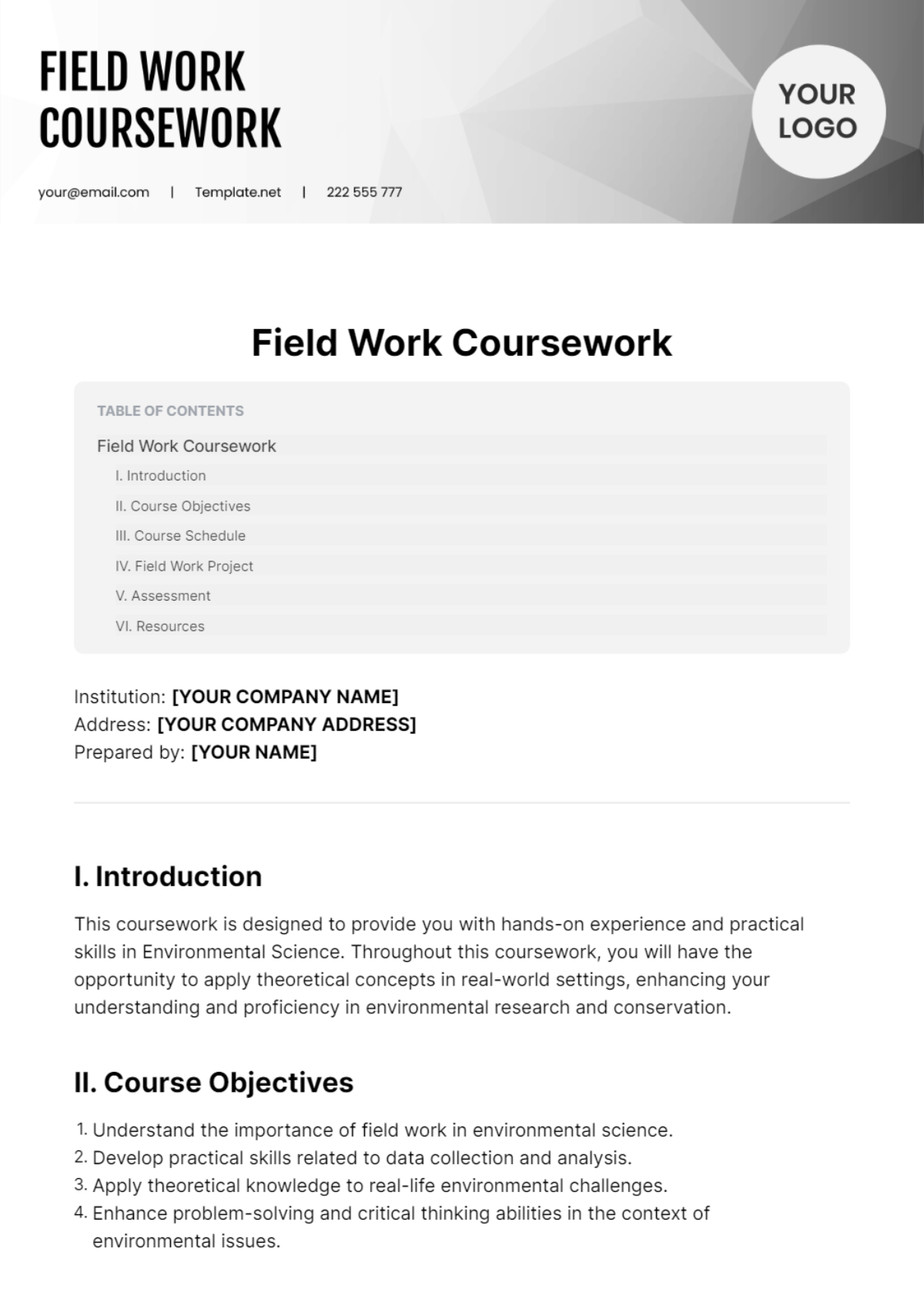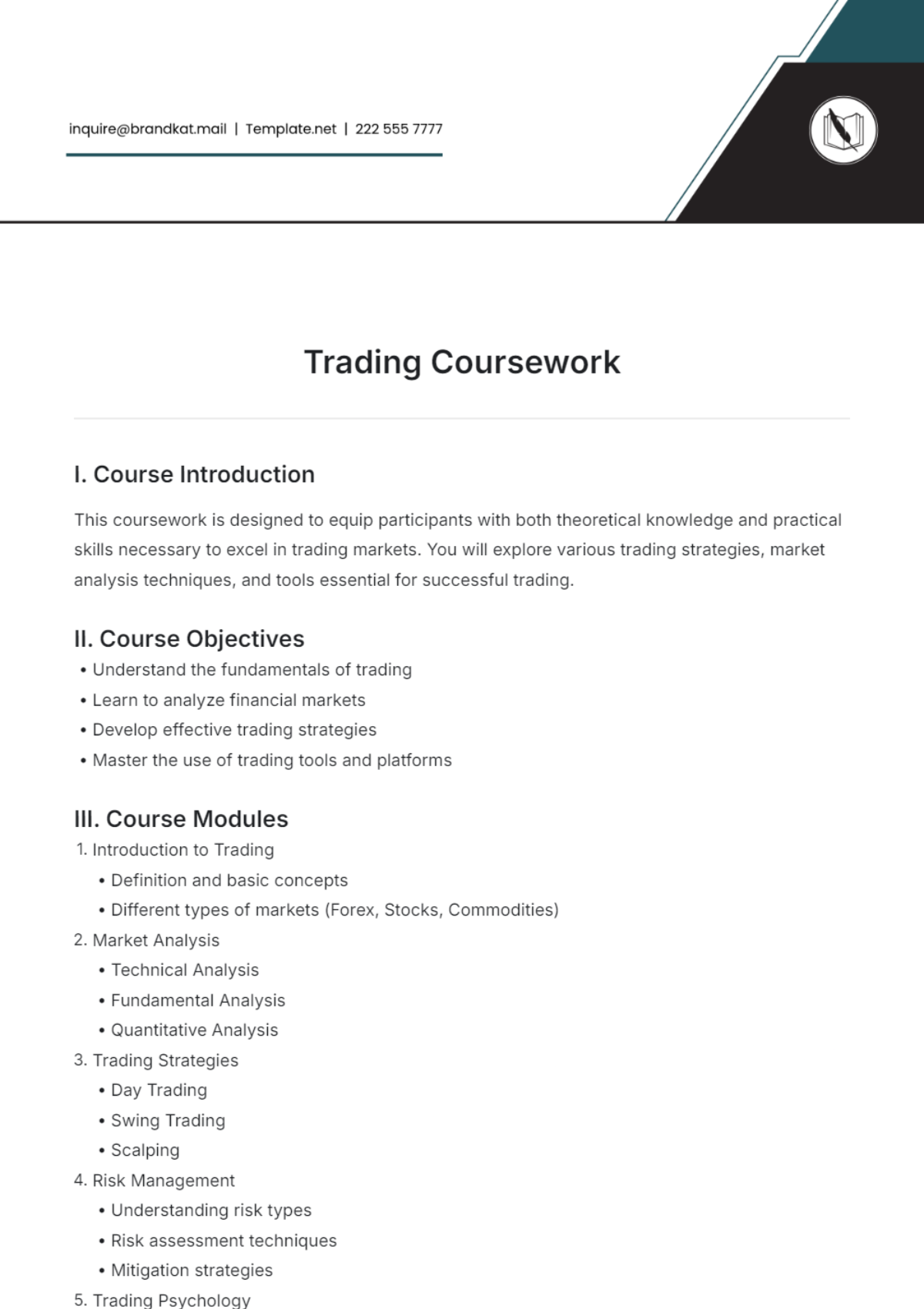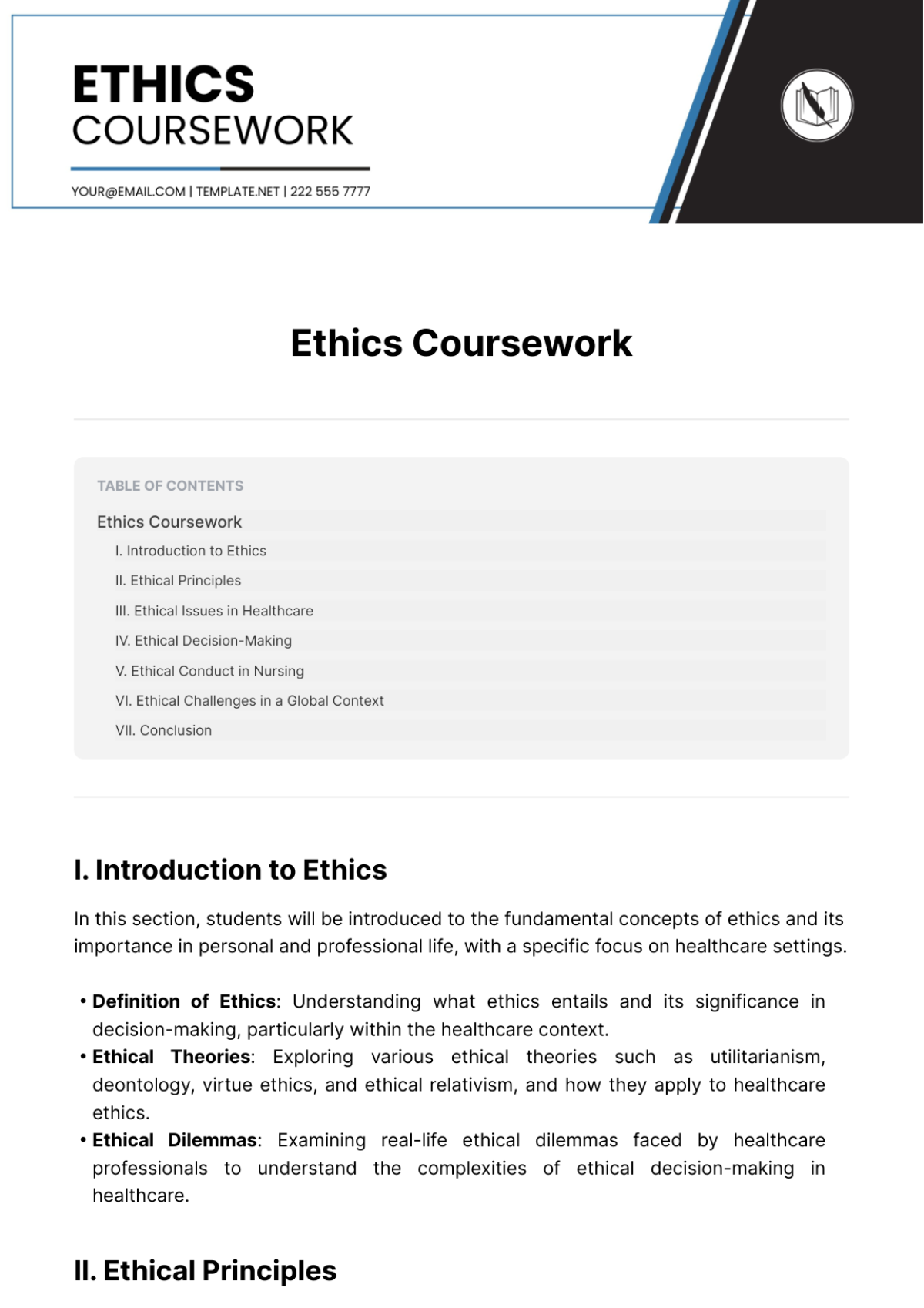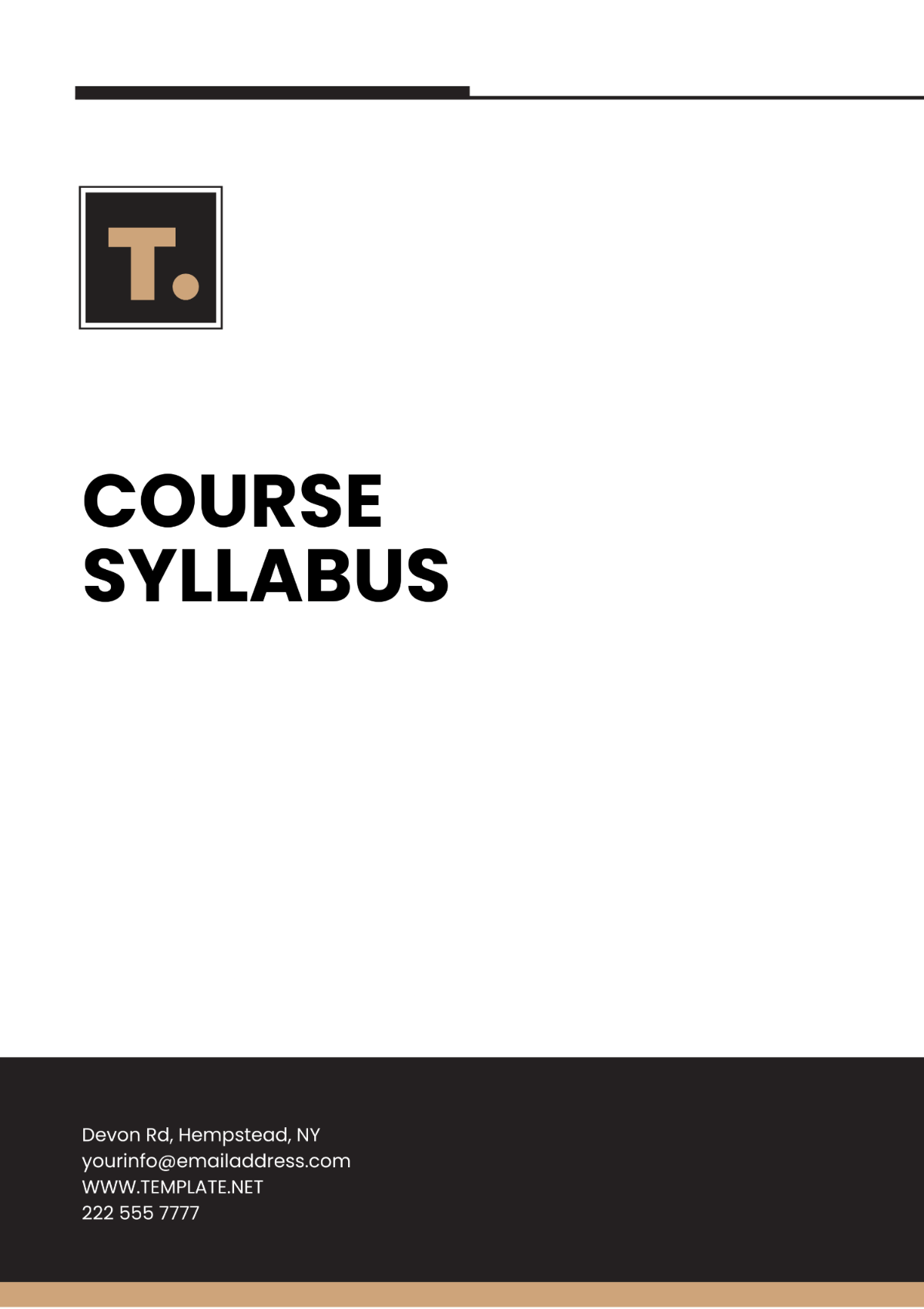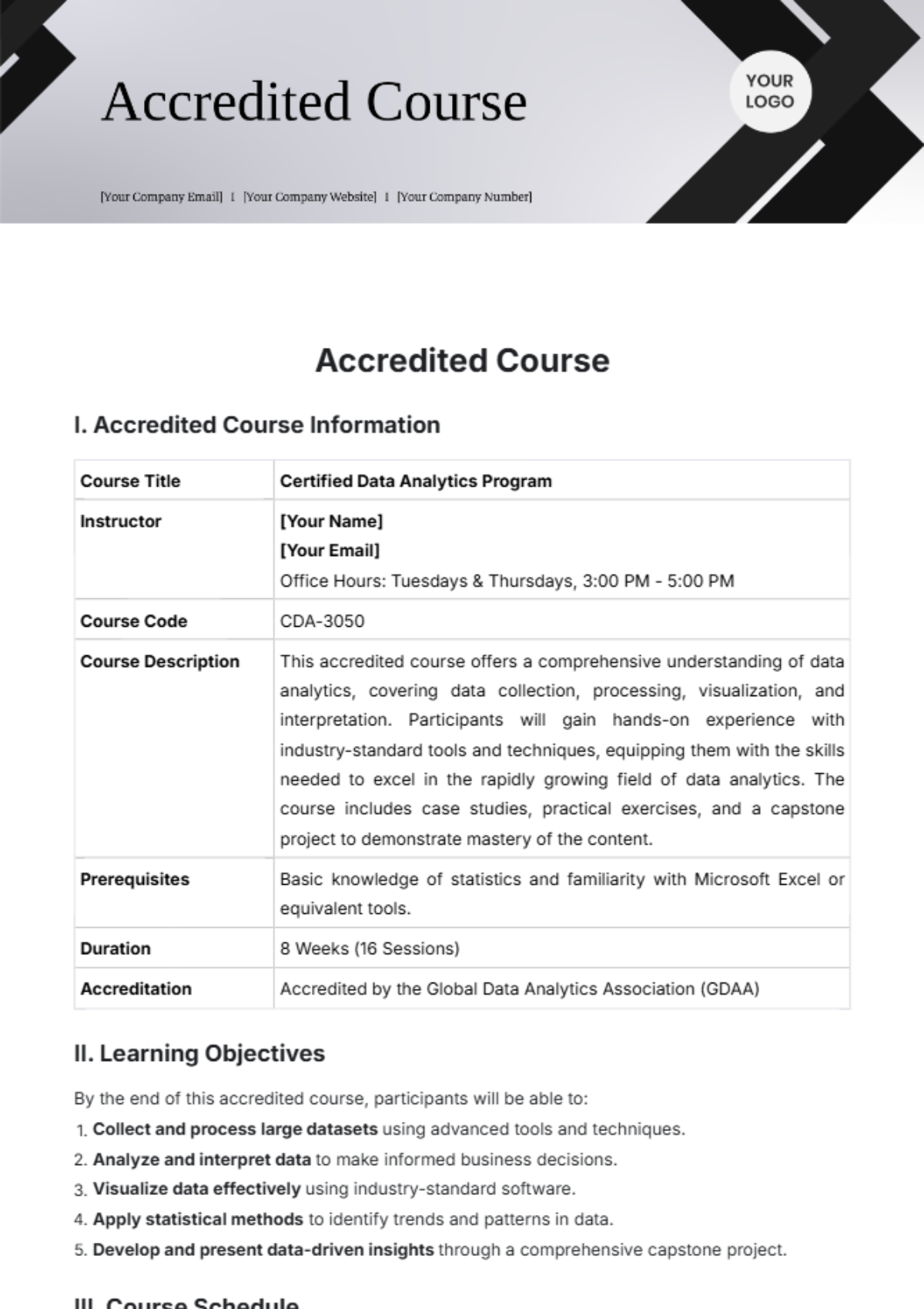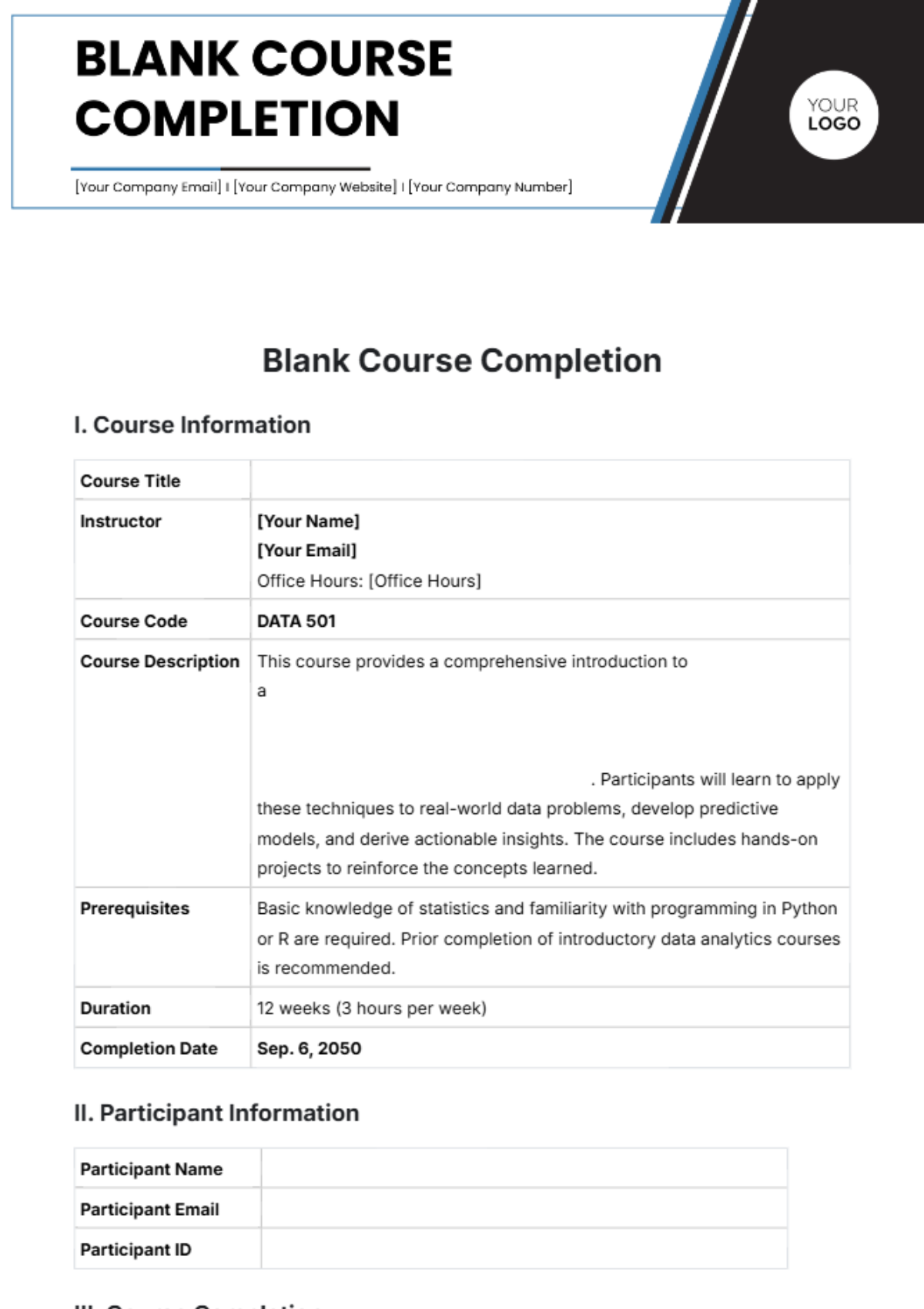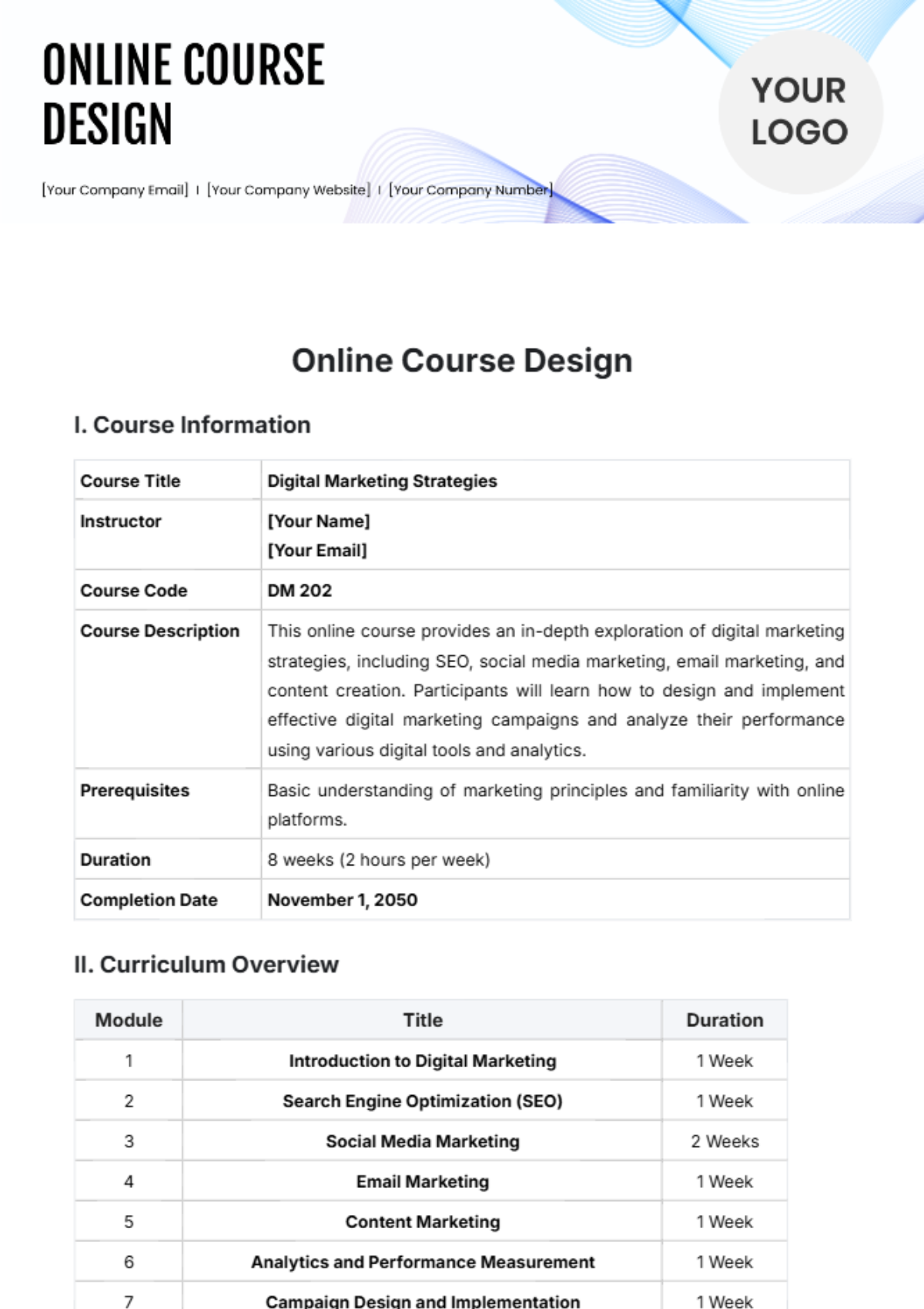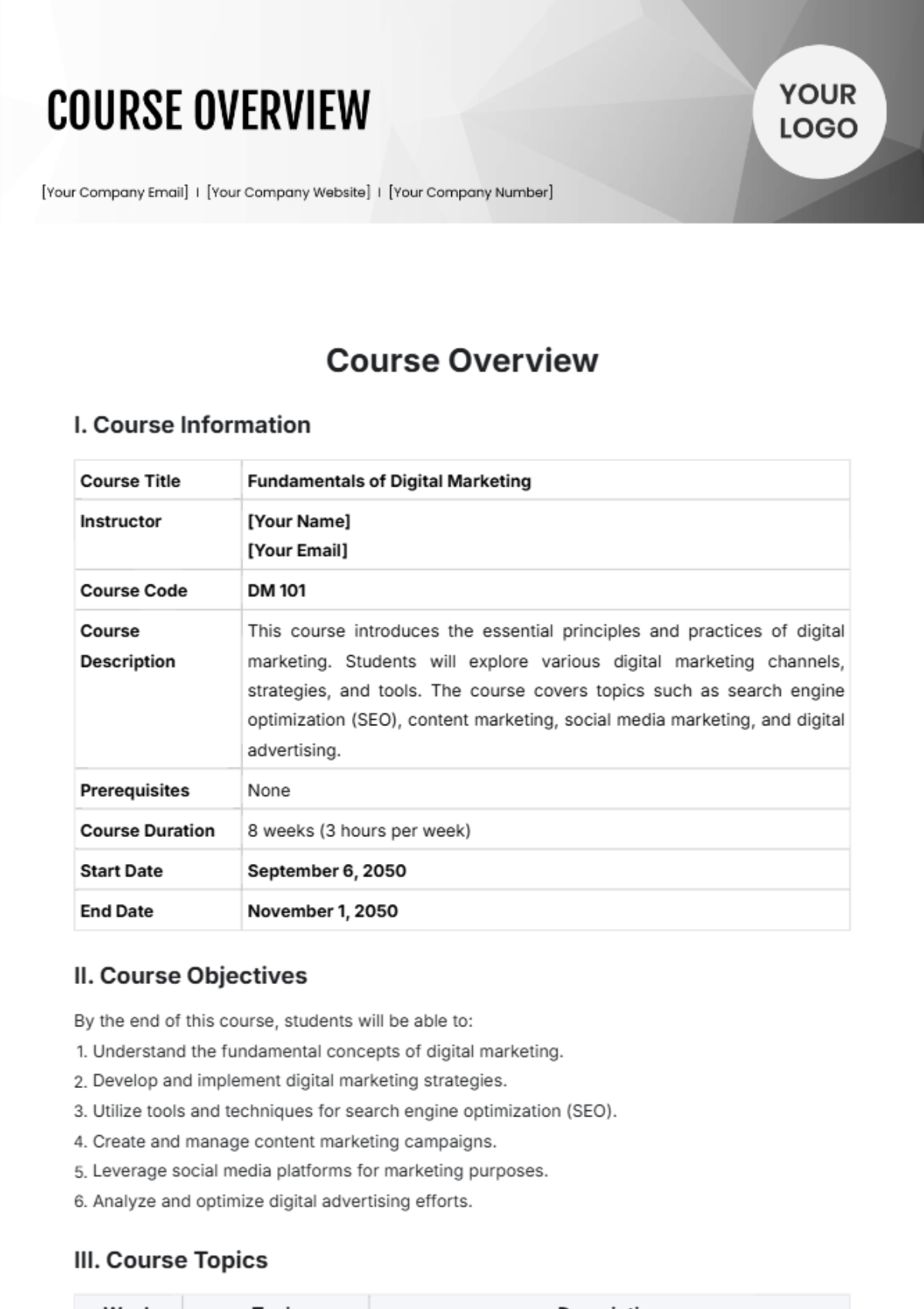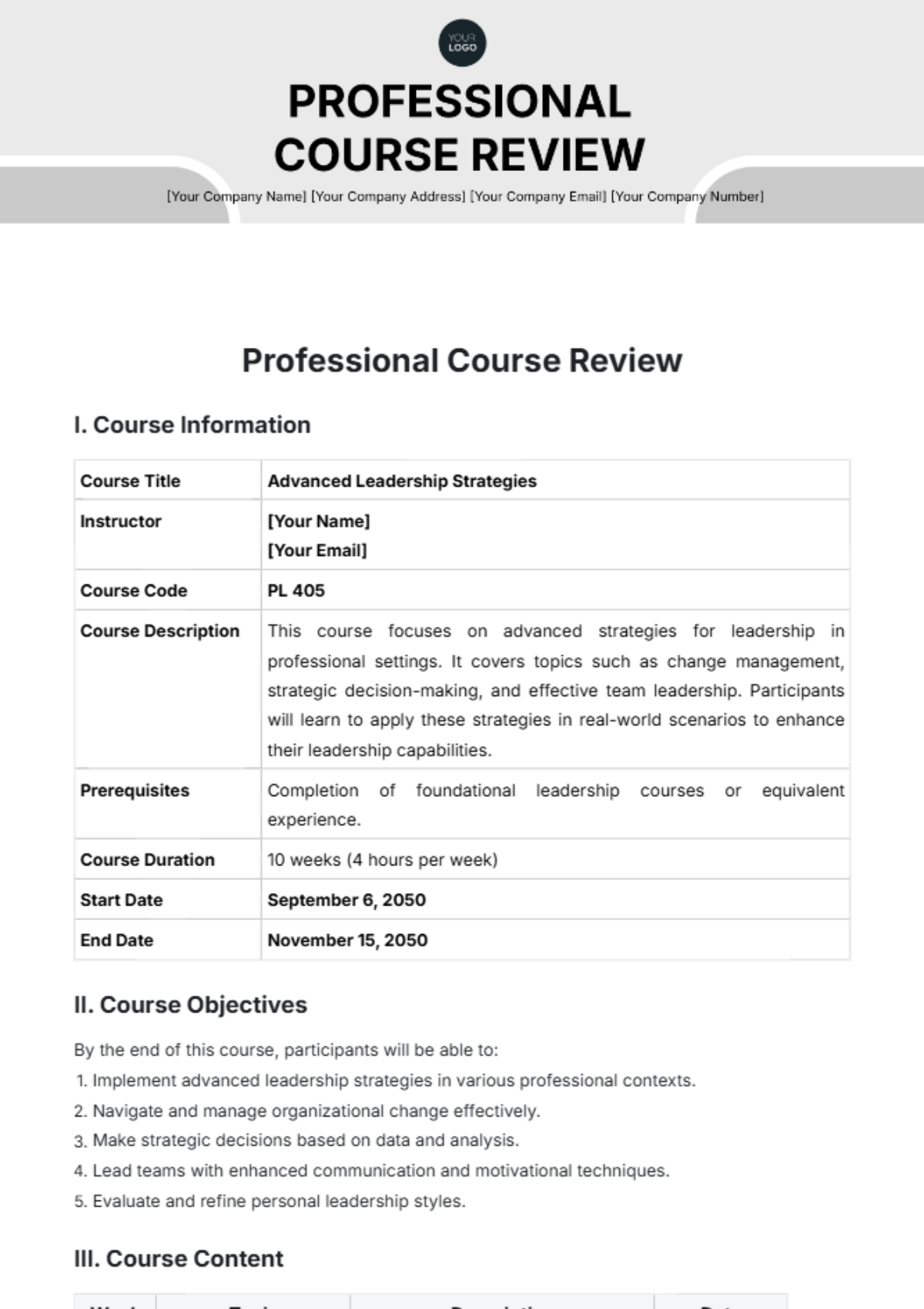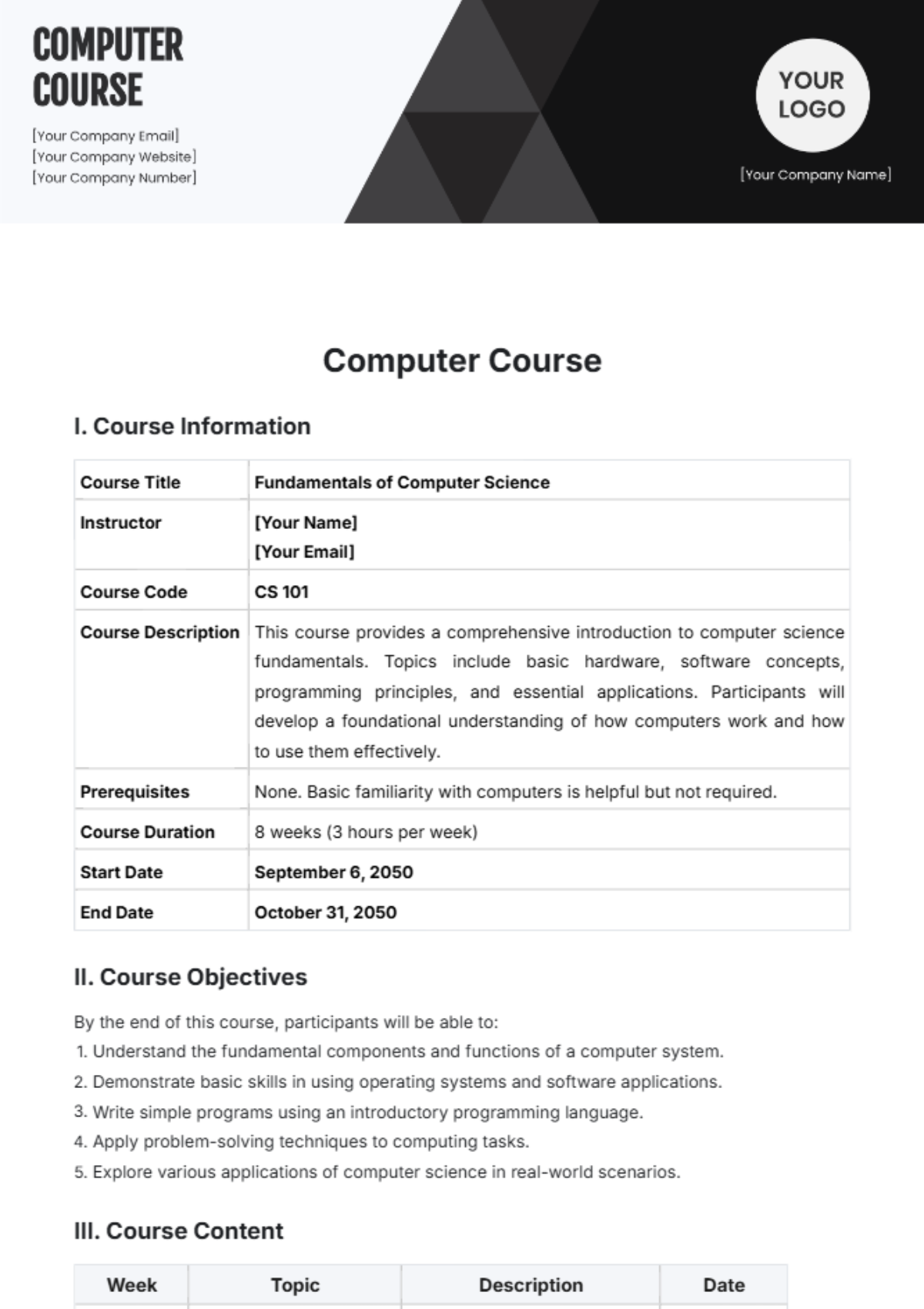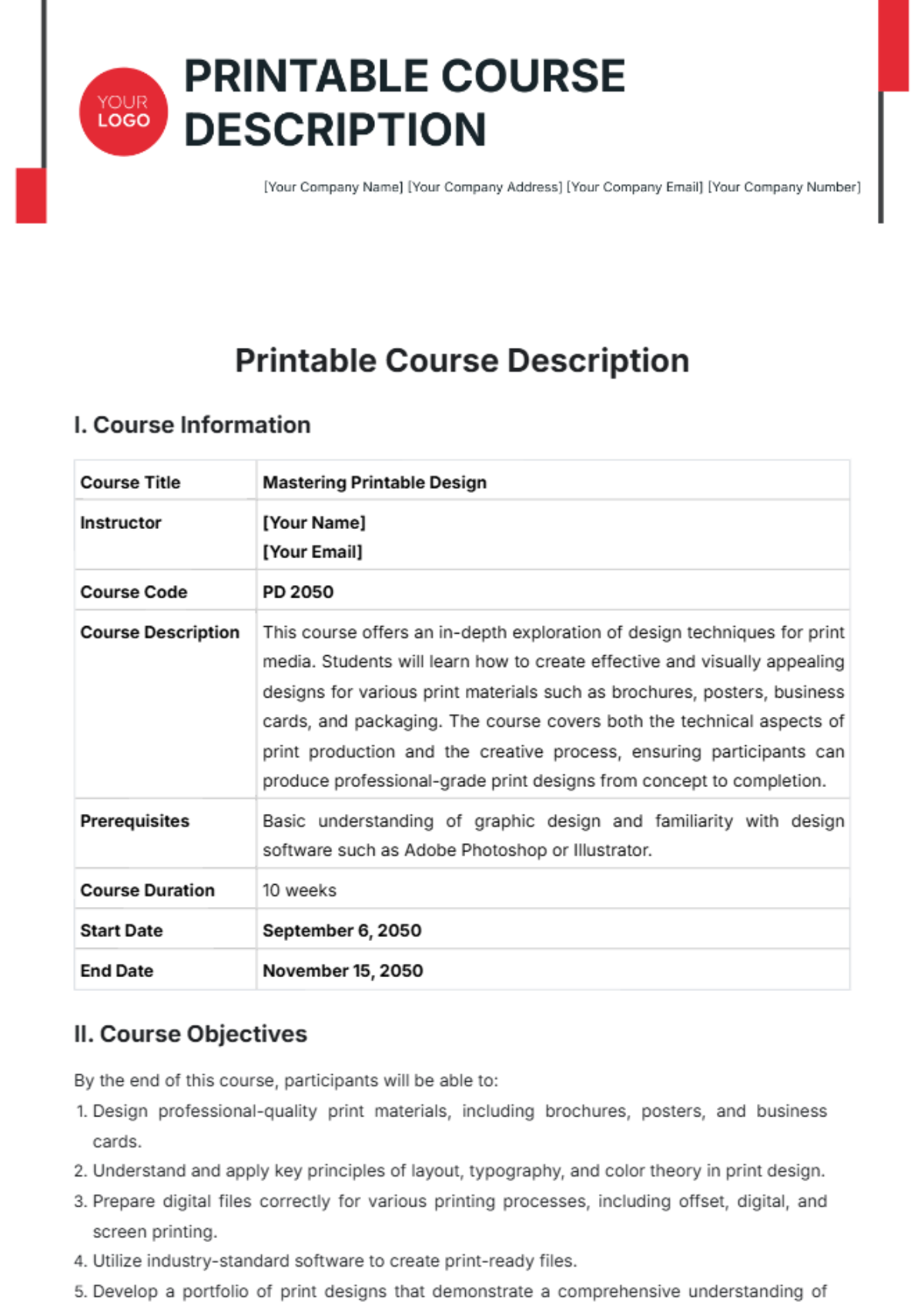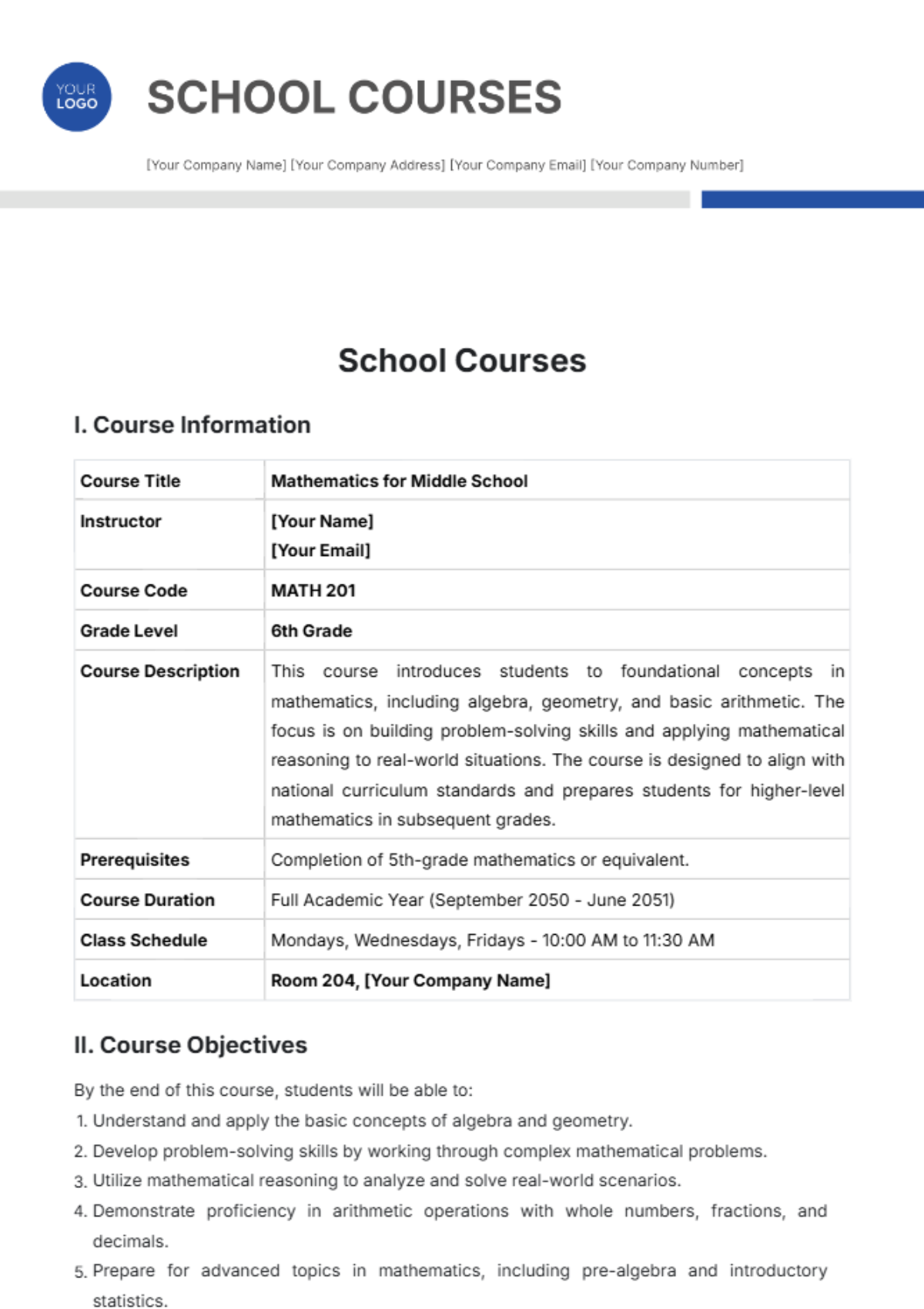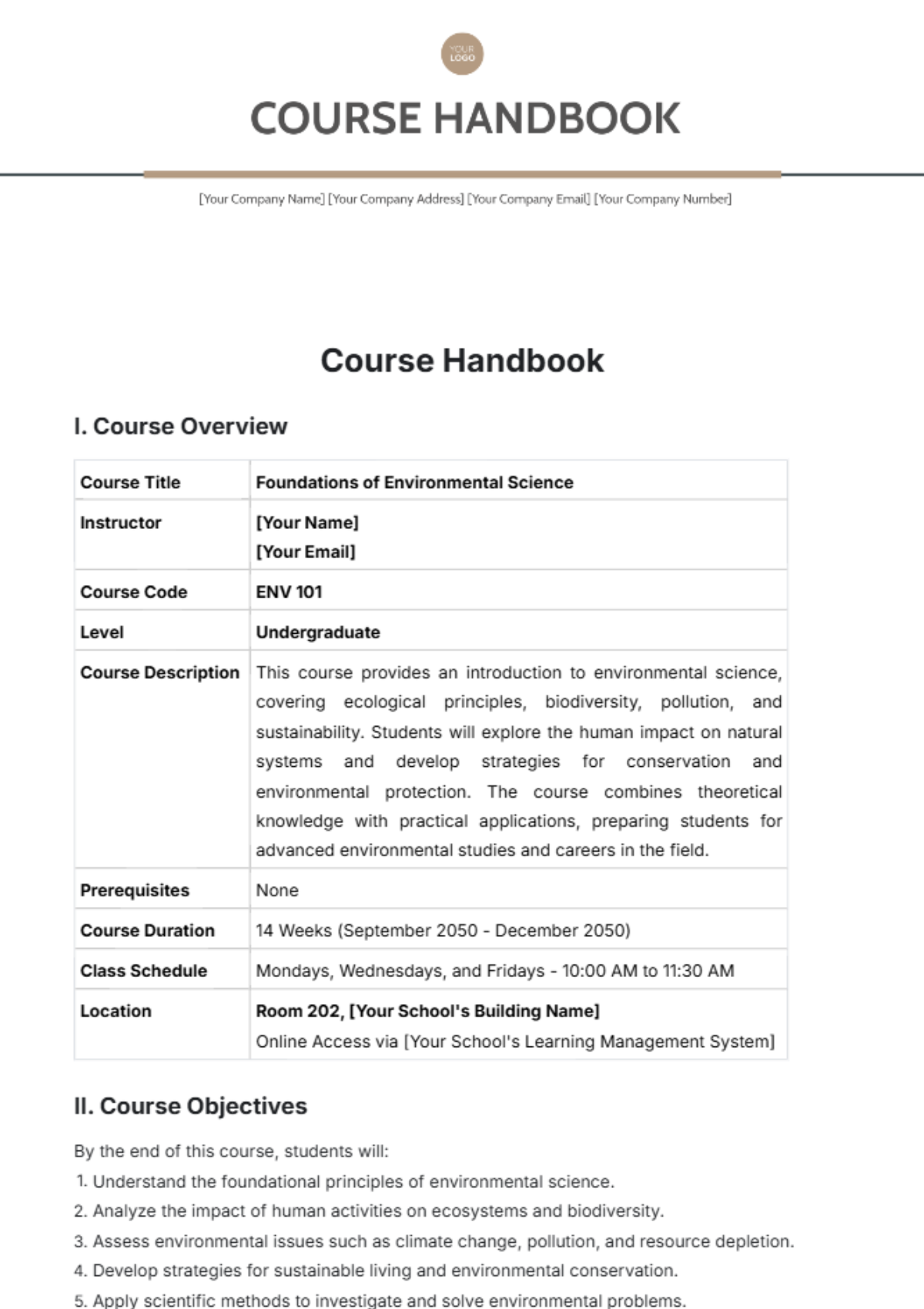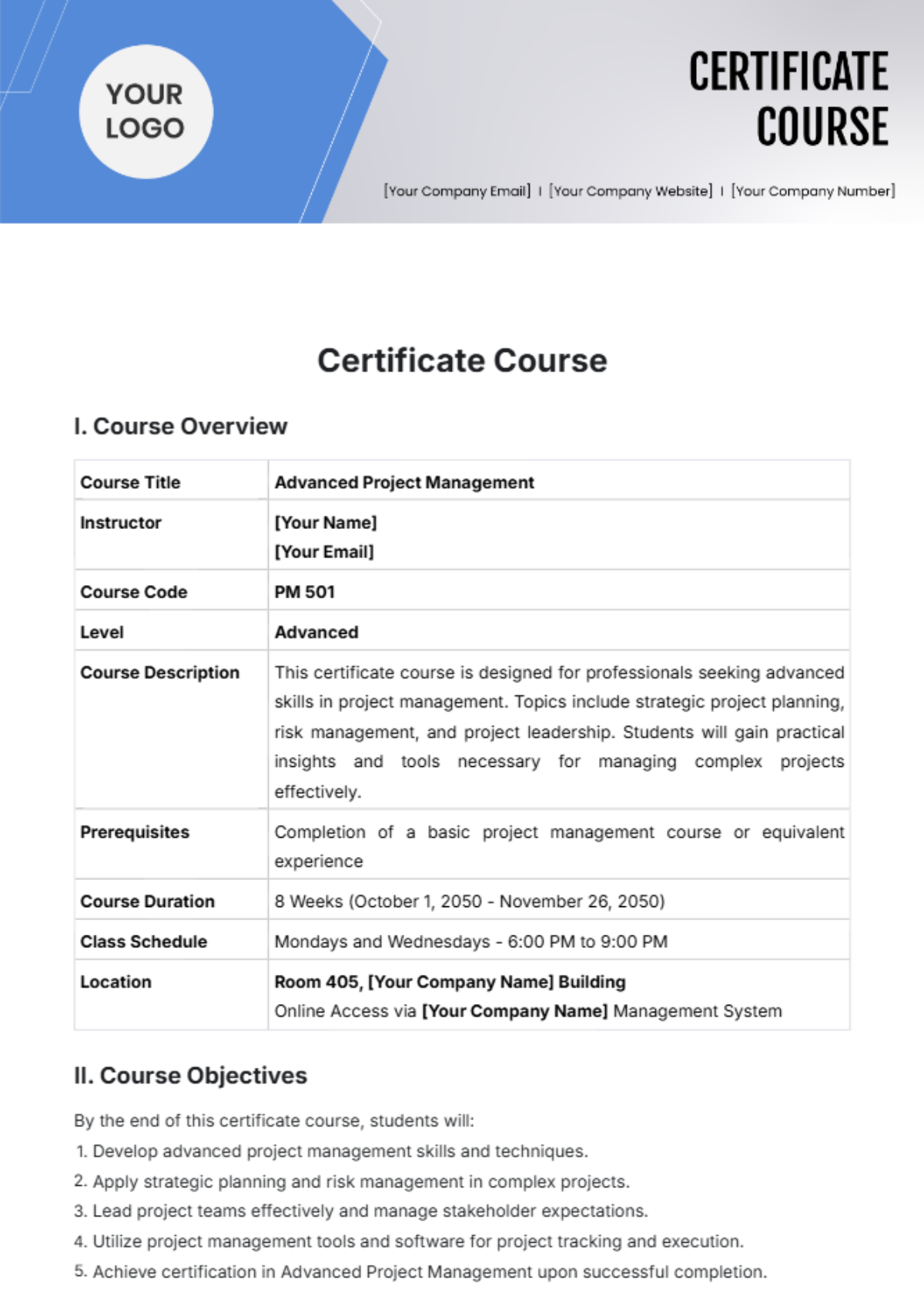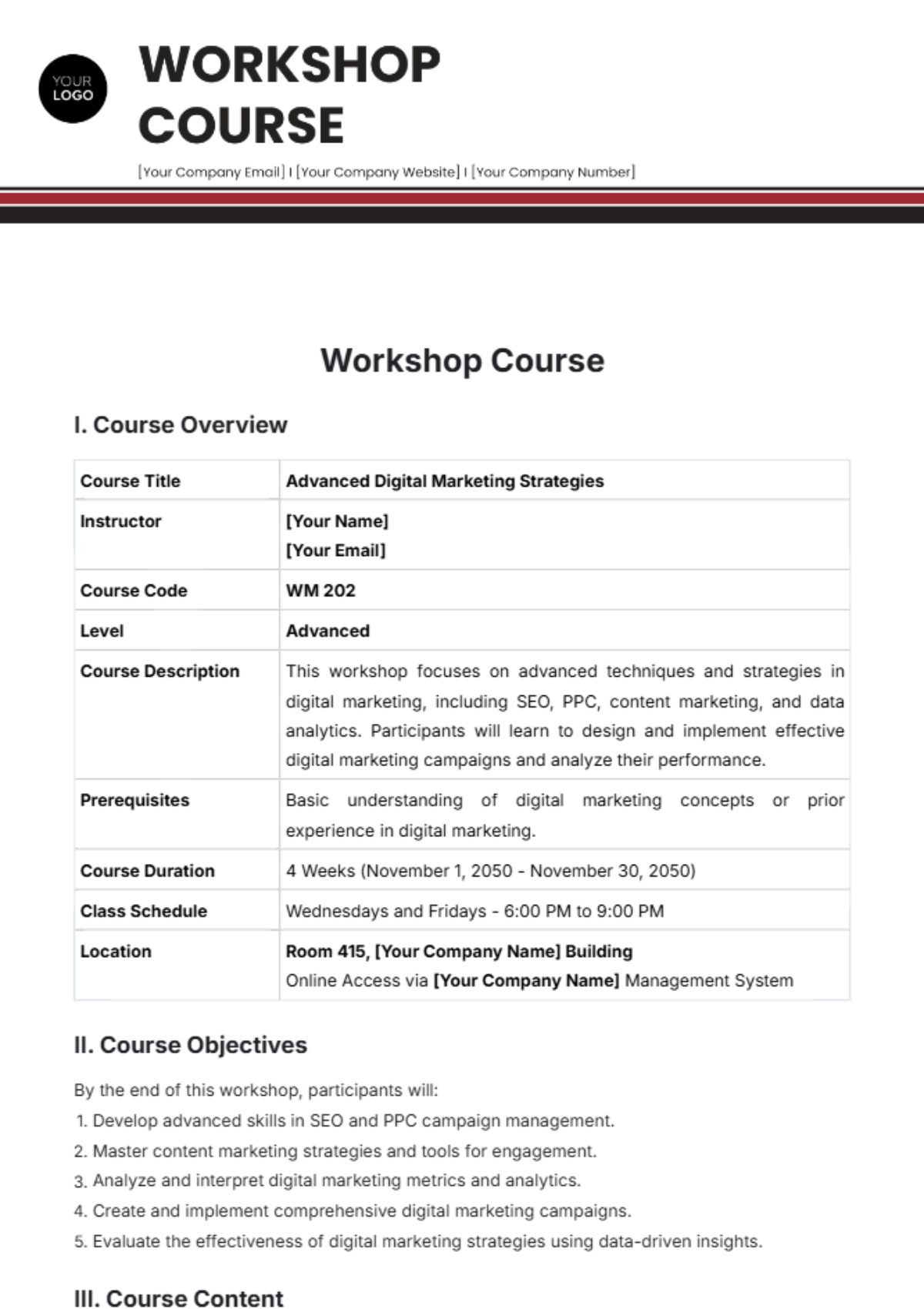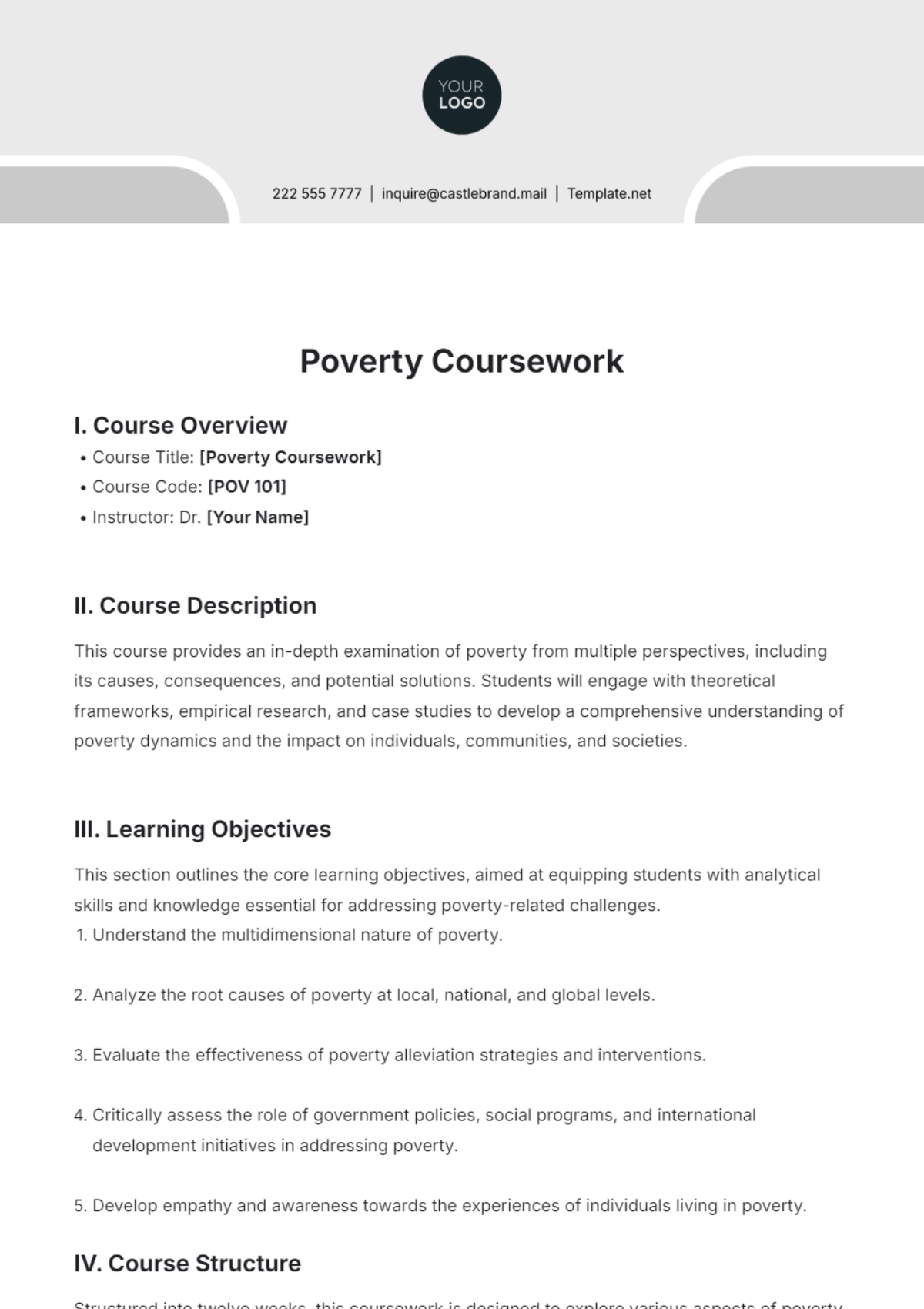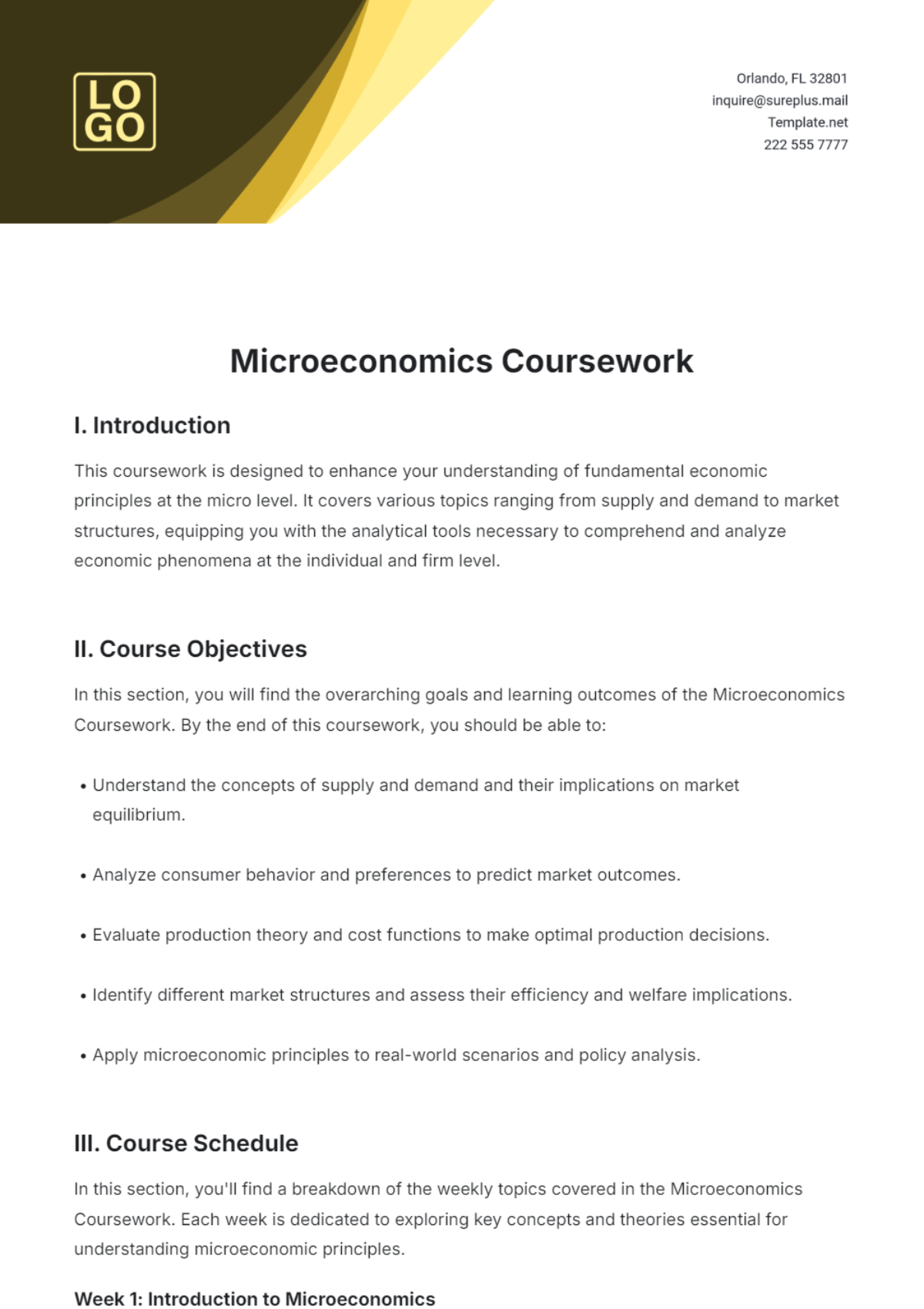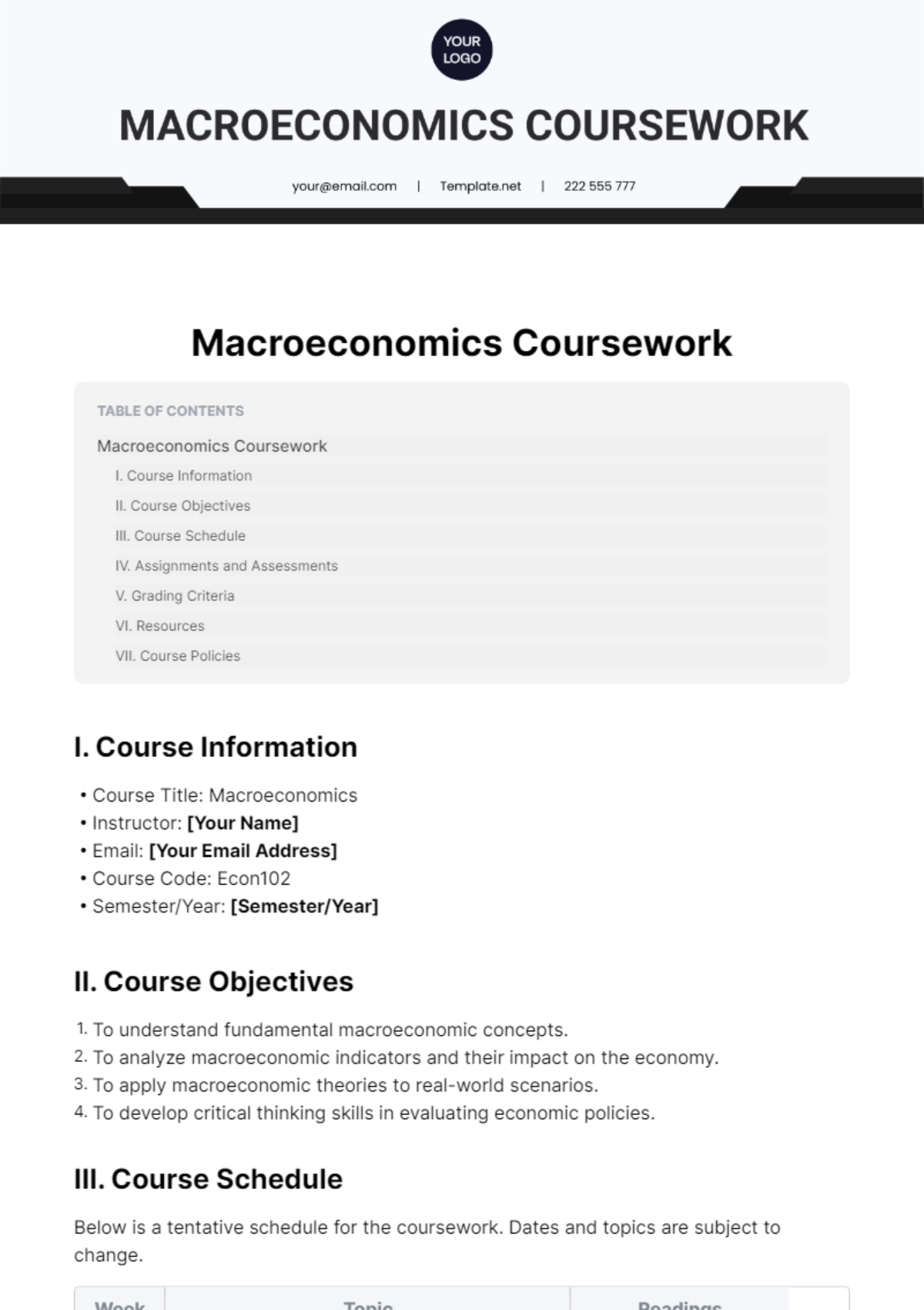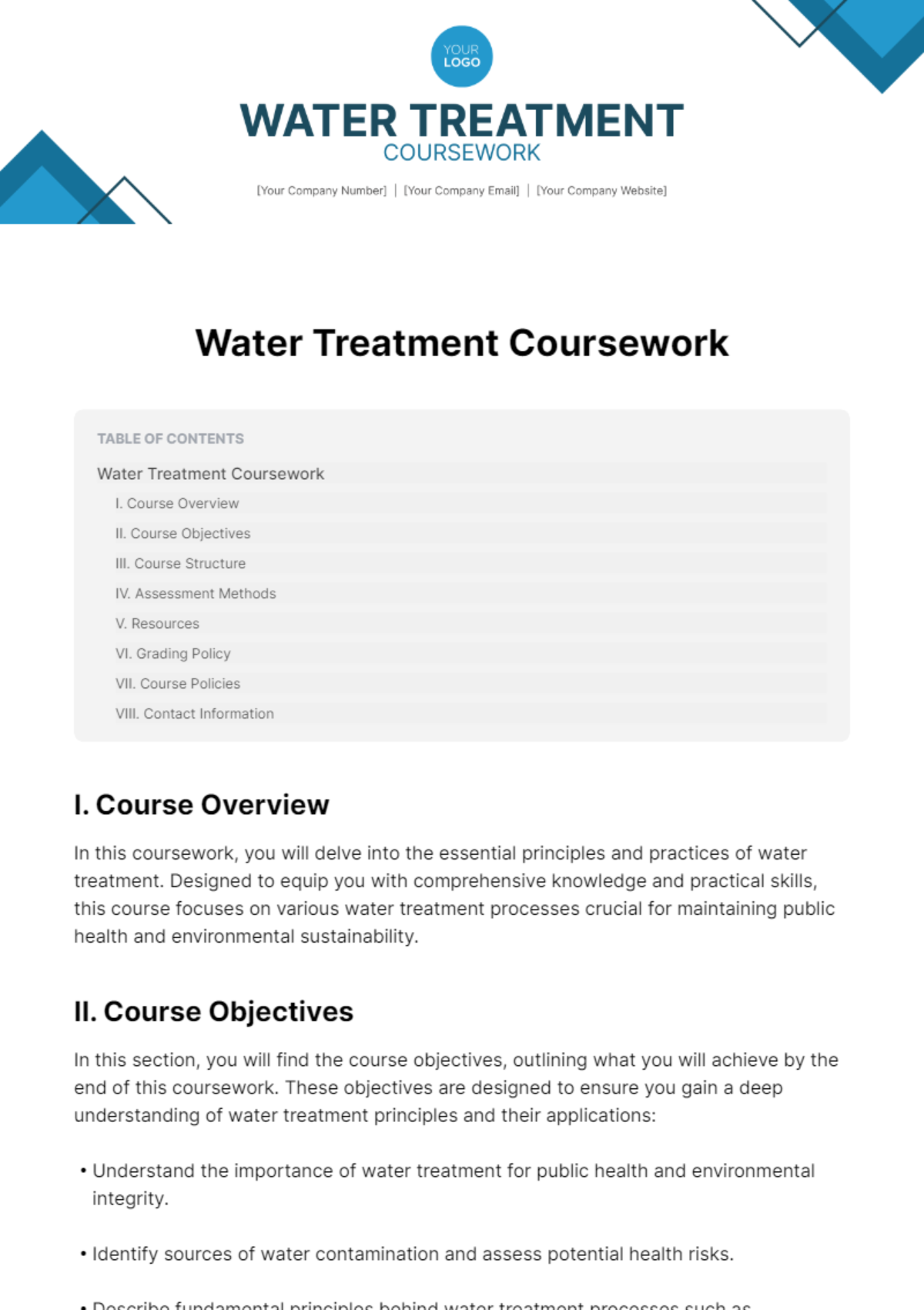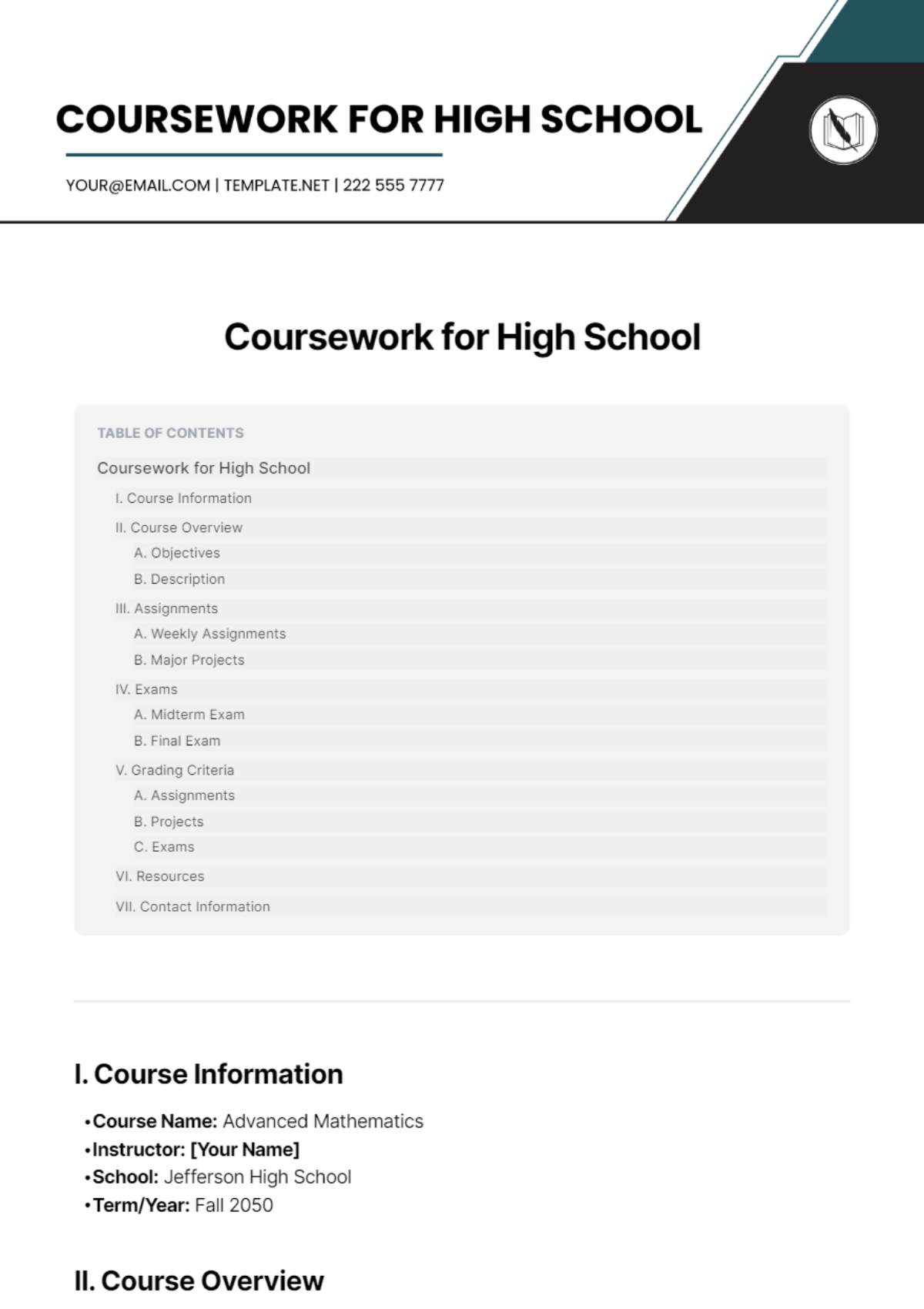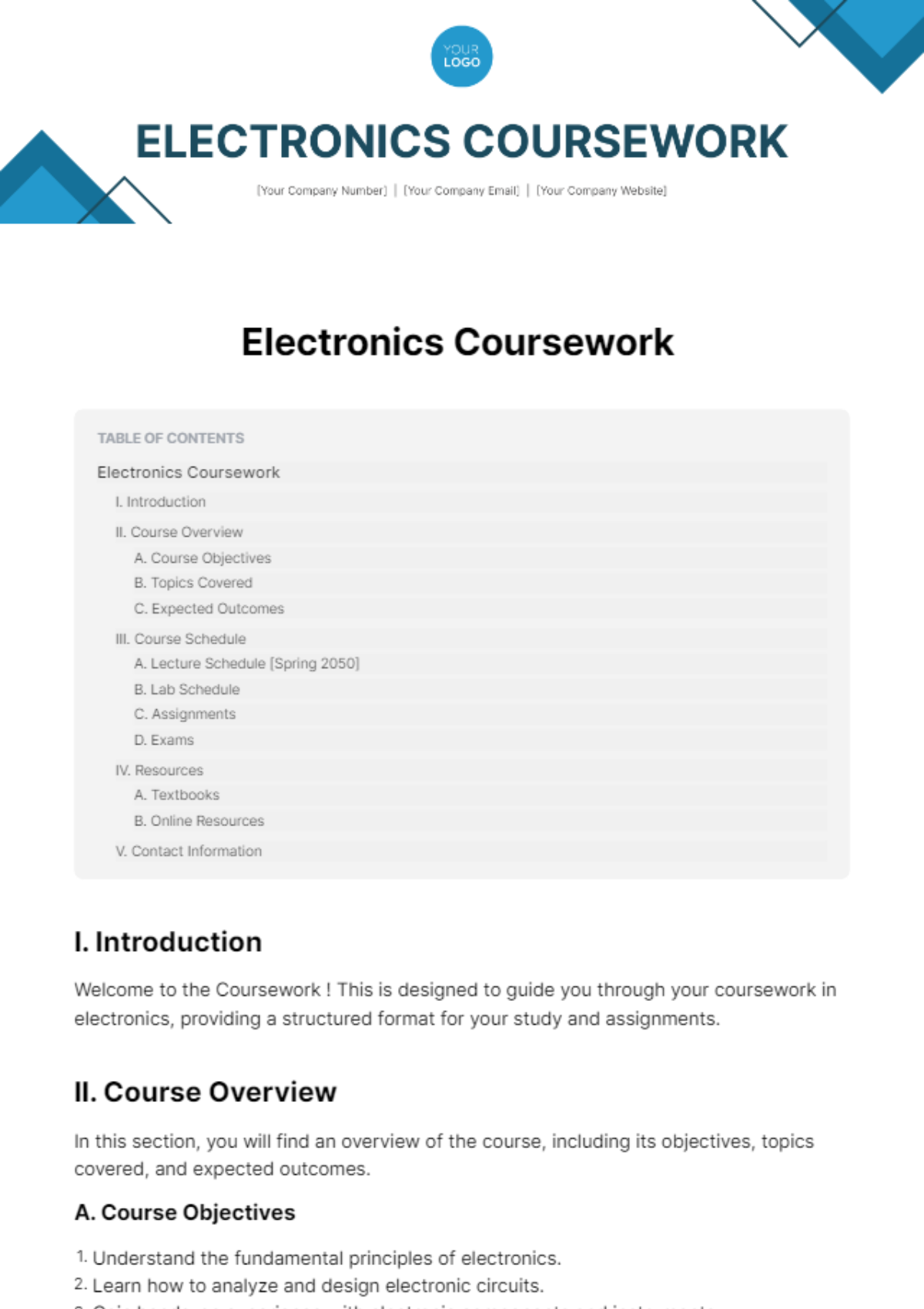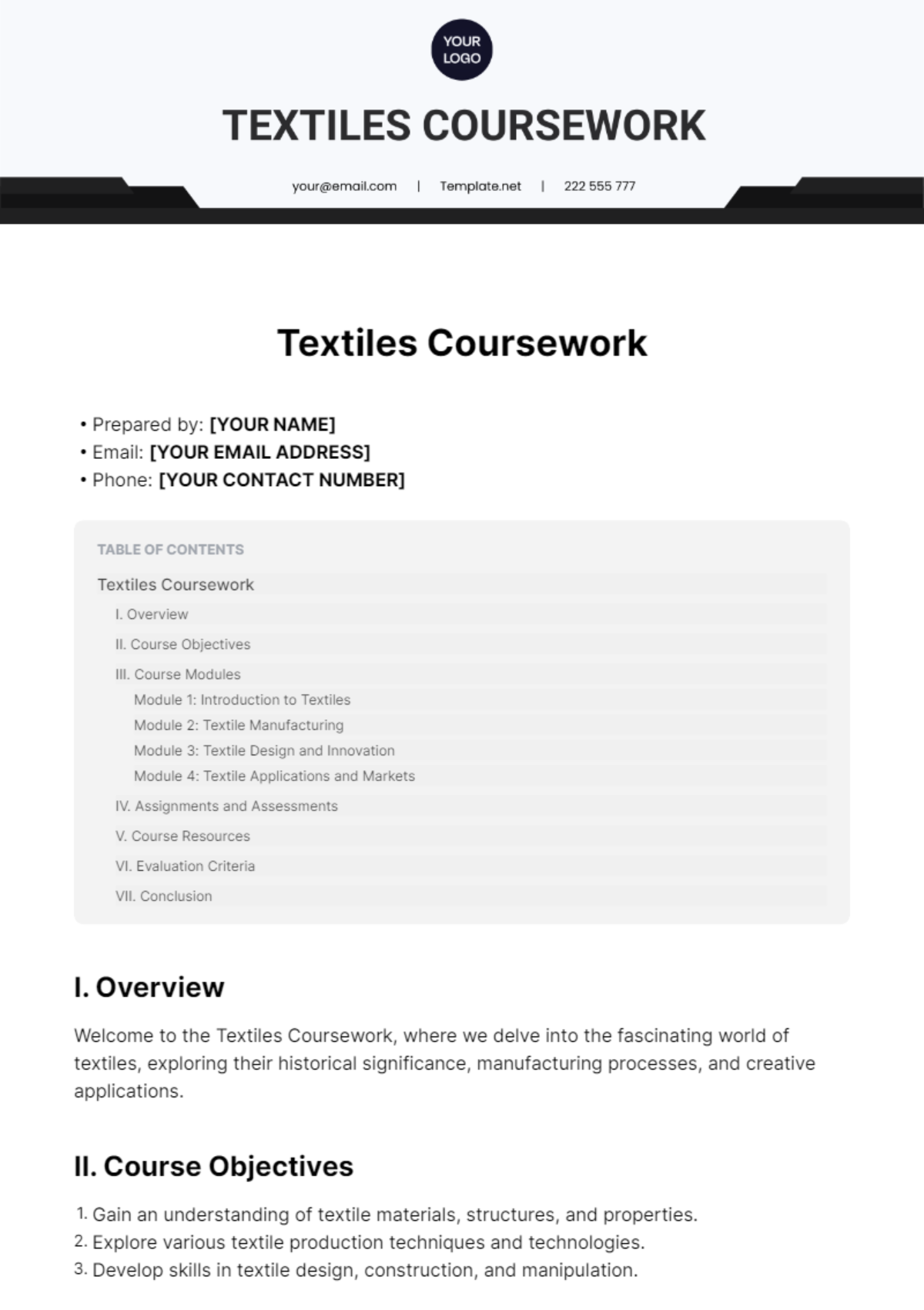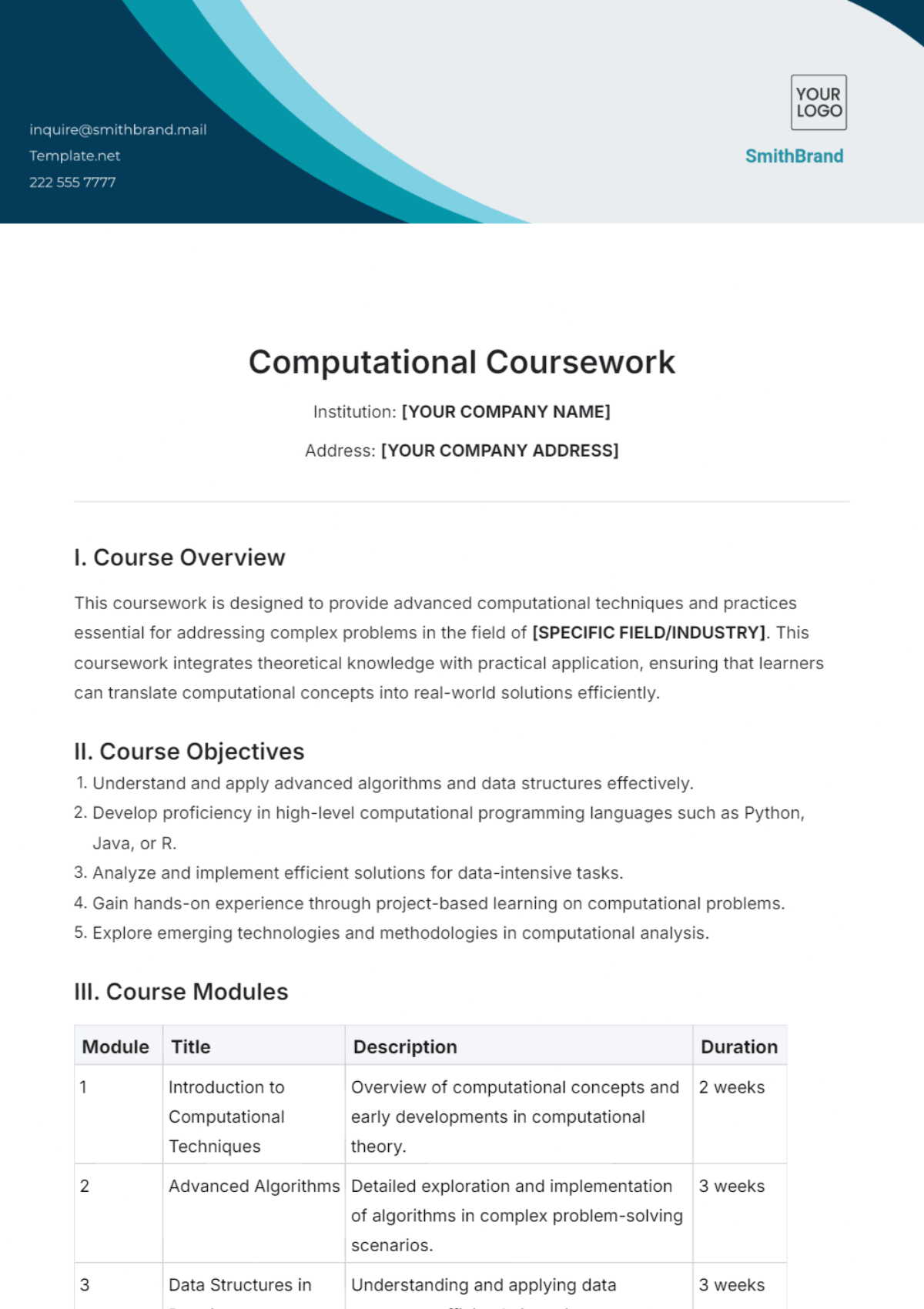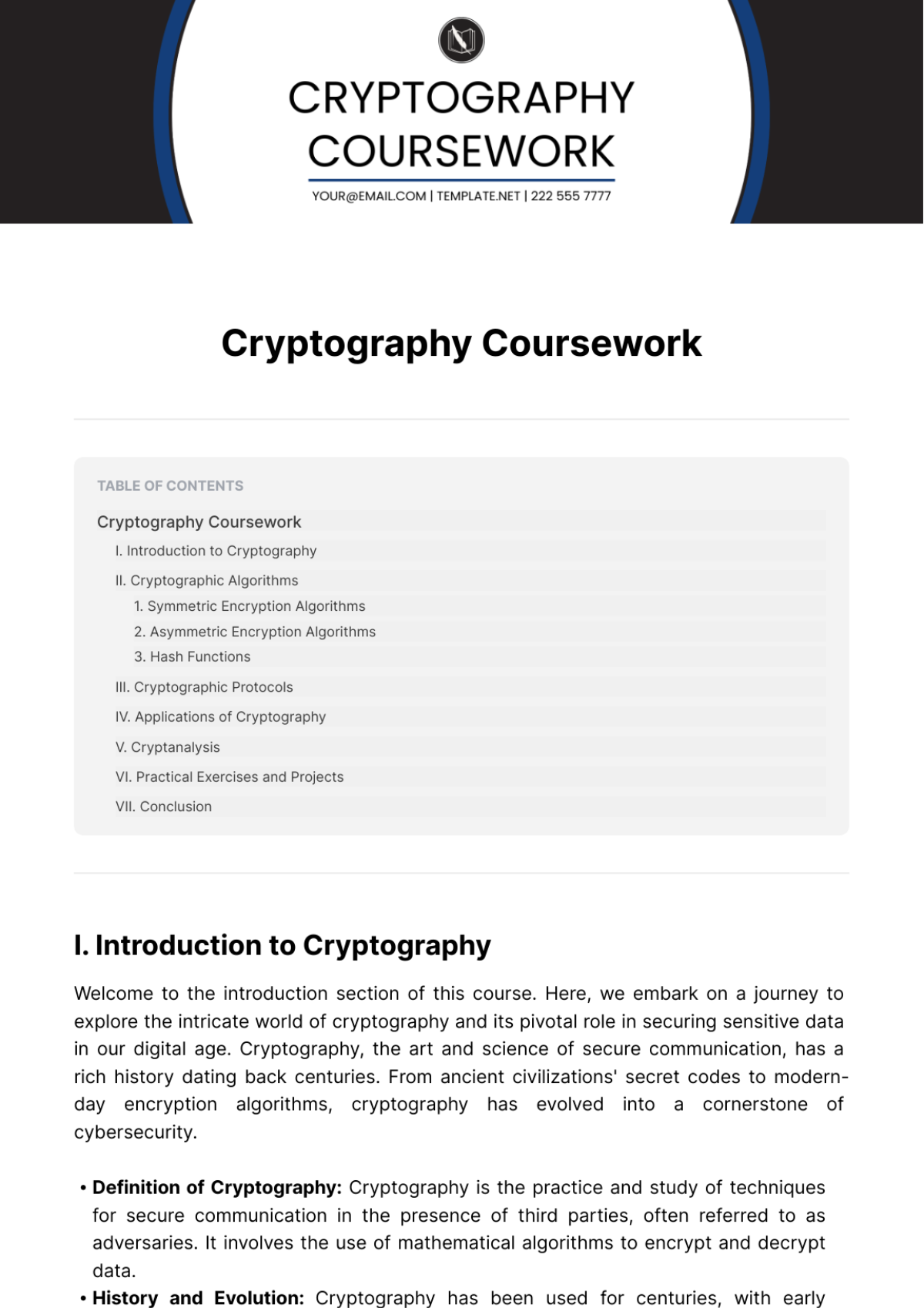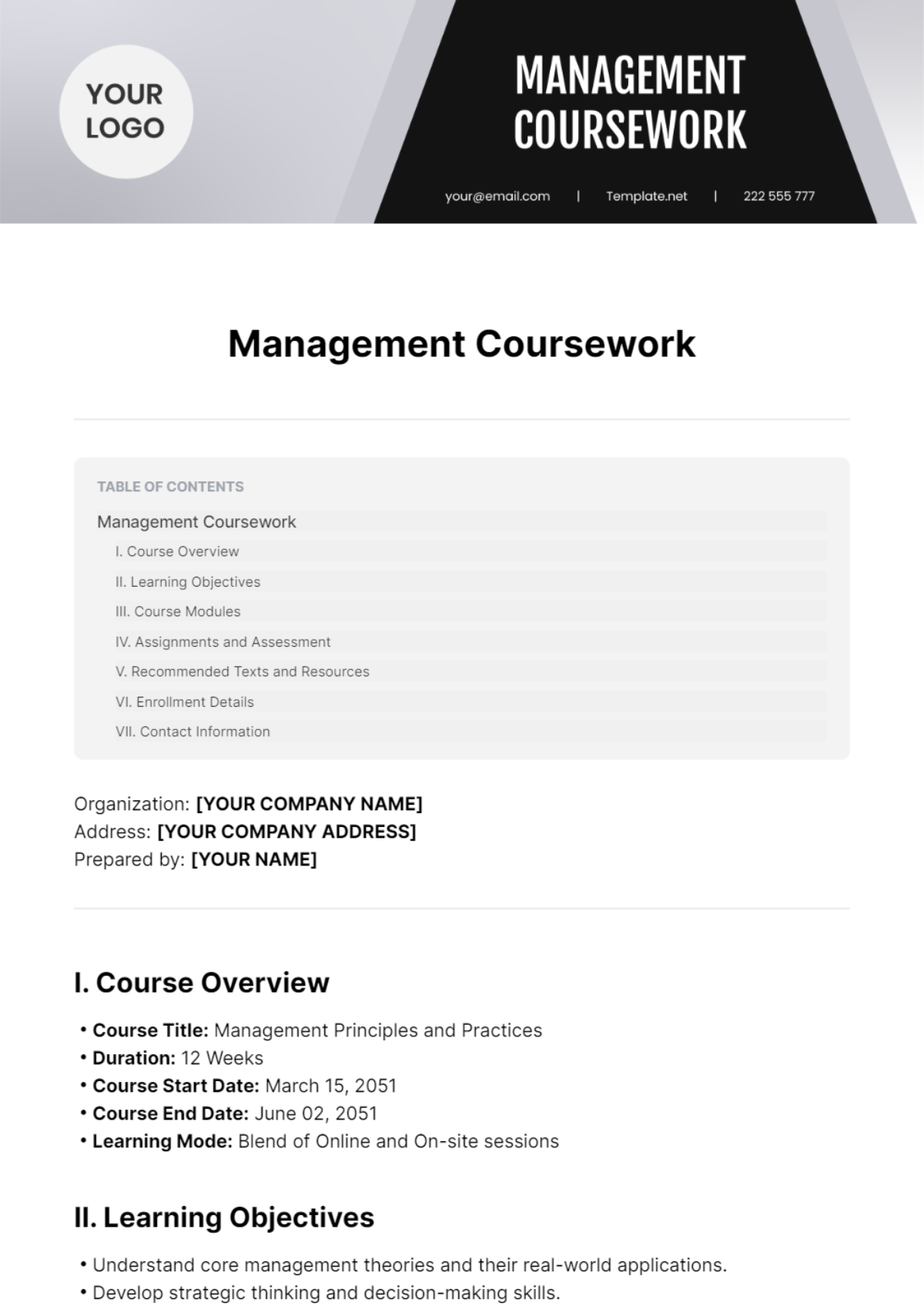Resistance Coursework
Prepared by: | [Your Name] |
Email: | [Your Email Address] |
Phone: | [Your Contact Number] |
I. Course Description
This course provides an in-depth exploration of electrical resistance, a fundamental concept in the field of physics. Students will learn about the properties of resistors, Ohm's Law, circuits, and the factors affecting resistance.
Through a combination of lectures, hands-on experiments, and problem-solving activities, students will develop a strong understanding of electrical resistance and its applications in various practical scenarios.
II. Learning Outcomes
Understand the concept of electrical resistance and its significance in electrical circuits.
Apply Ohm's Law to calculate resistance, voltage, and current in simple and complex circuits.
Analyze the factors that affect resistance including material properties, temperature, and geometric dimensions.
Troubleshoot circuit problems related to resistance, voltage drops, and power dissipation.
III. Coursework Overview
Lectures: Weekly lectures will cover theoretical concepts related to electrical resistance, including Ohm's Law, series and parallel circuits, and applications of resistors in electronic devices.
Laboratory Experiments: Biweekly laboratory sessions will provide hands-on experience with measuring resistance, constructing circuits, and analyzing circuit behavior. Students will use multimeters, breadboards, and other laboratory equipment to perform experiments and verify theoretical principles.
Problem-Solving Exercises: Assignments and quizzes will include problem-solving exercises that require students to apply mathematical formulas and concepts related to electrical resistance. These exercises will reinforce learning objectives and develop critical thinking skills.
Simulations and Demonstrations: Computer simulations and classroom demonstrations will supplement lectures and laboratory activities, providing visualizations of electrical circuits and phenomena related to resistance.
Projects: Students will have the opportunity to work on individual or group projects related to electrical resistance, such as designing a circuit, conducting a research study, or presenting on a specific application of resistors.
IV. Assessment Methods and Grading Policy
Assessment Methods | Weight (%) |
|---|---|
Mid-term Exams (2) | 20% each |
Final Exam | 30% |
Laboratory Reports | 15% |
Assignments and Quizzes | 10% |
Projects | 15% |
Attendance and Participation | 10% |
V. Course Schedule
Week | Topic |
|---|---|
1-3 | Introduction to Electrical Resistance |
4-6 | Ohm's Law and Resistance Calculations |
7-9 | Series and Parallel Circuits |
10-12 | Factors Affecting Resistance |
13-15 | Applications of Resistors |
16 | Review and Final Exam |
VI. Course Policies
Attendance: Regular attendance is expected for all lectures, laboratory sessions, and other scheduled course activities. Attendance may be taken, and participation in class discussions and activities will be considered in the final grade.
Late Assignments: Late submissions for assignments, laboratory reports, or projects may be subject to a penalty unless prior arrangements have been made with the instructor.
Academic Integrity: Students are expected to uphold the highest standards of academic integrity. Plagiarism, cheating, or any form of academic dishonesty will not be tolerated and will result in disciplinary action in accordance with university policies.
Collaboration: Collaboration on assignments and projects is encouraged, but all submitted work must be individual unless specified otherwise. Proper citation of sources is required for any borrowed ideas or materials.
Communication: Students are encouraged to communicate with the instructor regarding any questions, concerns, or accommodations needed for the course. The instructor will provide regular office hours for one-on-one consultations.
